

| Cruise Region : USA / Canada / Mexico, Caribbean |
| Company : Oceania Cruises |
| Ship : VISTA |
| Journey Start : Thu 09 Jul 2026 |
| Journey End : Mon 14 Sep 2026 |
| Count Nights : 67 nights |
| Day | Date | Port | Arrival | Departure |
|---|---|---|---|---|
| 1 | 9.07 Thu | New York / USA | 07:00 | 17:00 |
| 2 | 10.07 Fri | Day at sea / Sea | ||
| 3 | 11.07 Sat | Halifax / Canada | 08:00 | 16:00 |
| 4 | 12.07 Sun | Sydney / Australia | 09:00 | 18:00 |
| 5 | 13.07 Mon | Saint Pierre and Miquelon / France | 08:00 | 18:00 |
| 6 | 14.07 Tue | St. John's / Canada | 08:00 | 16:00 |
| 7 | 15.07 Wed | Day at sea / Sea | ||
| 8 | 16.07 Thu | Day at sea / Sea | ||
| 9 | 17.07 Fri | Day at sea / Sea | ||
| 10 | 18.07 Sat | Grundarfjordur / Iceland | 09:00 | 17:00 |
| 11 | 19.07 Sun | Akureyri / Iceland | 11:00 | 20:00 |
| 12 | 20.07 Mon | Siglufjordur / Iceland | 07:00 | 17:00 |
| 13 | 21.07 Tue | Isafjordur / Iceland | 07:00 | 17:00 |
| 14 | 22.07 Wed | Reykjavik / Iceland | 07:00 | |
| 15 | 23.07 Thu | Reykjavik / Iceland | 18:00 | |
| 16 | 24.07 Fri | Heimaey Vestmannaeyjar Island | 08:00 | 16:00 |
| 17 | 25.07 Sat | Djupivogur / Iceland | 07:00 | 17:00 |
| 18 | 26.07 Sun | Day at sea / Sea | ||
| 19 | 27.07 Mon | Alesund / Norway | 08:00 | 18:00 |
| 20 | 28.07 Tue | Måløy | 08:00 | 18:00 |
| 21 | 29.07 Wed | Haugesund / Norway | 08:00 | 20:00 |
| 22 | 30.07 Thu | Day at sea / Sea | ||
| 23 | 31.07 Fri | Amsterdam / Netherlands | 08:00 | 17:00 |
| 24 | 1.08 Sat | Used | 07:00 | 17:00 |
| 25 | 2.08 Sun | London / Great Britain | 07:00 | 17:00 |
| 26 | 3.08 Mon | Portland / USA | 07:00 | 17:00 |
| 27 | 4.08 Tue | Portland / USA | 07:00 | 16:00 |
| 28 | 5.08 Wed | Dingle / Ireland | 11:00 | 19:00 |
| 29 | 6.08 Thu | Bantry / Ireland | 07:00 | 17:00 |
| 30 | 7.08 Fri | Cork / Ireland | 07:00 | 17:00 |
| 31 | 8.08 Sat | Waterford / Ireland | 07:00 | 17:00 |
| 32 | 9.08 Sun | Holyhead / Great Britain | 07:00 | 17:00 |
| 33 | 10.08 Mon | Liverpool | 07:00 | 17:00 |
| 34 | 11.08 Tue | Dublin / Ireland | 07:00 | 17:00 |
| 35 | 12.08 Wed | Belfast / Great Britain | 06:20 | 19:00 |
| 36 | 13.08 Thu | Douglas / Maine Island | 08:00 | 18:00 |
| 37 | 14.08 Fri | Derry / Great Britain | 07:00 | 19:00 |
| 38 | 15.08 Sat | Portree / Great Britain | 09:00 | 18:00 |
| 39 | 16.08 Sun | Scrabster / Scotland | 07:00 | 17:00 |
| 40 | 17.08 Mon | Invergordon / Great Britain | 07:00 | 17:00 |
| 41 | 18.08 Tue | Day at sea / Sea | ||
| 42 | 19.08 Wed | Kristiansand / Norway | 07:00 | 17:00 |
| 43 | 20.08 Thu | Copenhagen / Denmark | 10:00 | |
| 44 | 21.08 Fri | Copenhagen / Denmark | 20:00 | |
| 45 | 22.08 Sat | Berlin / Germany | 07:00 | 21:00 |
| 46 | 23.08 Sun | Ronne / Denmark | 07:00 | 17:00 |
| 47 | 24.08 Mon | Karlskrona / Sweden | 07:00 | 16:00 |
| 48 | 25.08 Tue | Day at sea / Sea | ||
| 49 | 26.08 Wed | Day at sea / Sea | ||
| 50 | 27.08 Thu | London / Great Britain | 07:00 | 21:00 |
| 51 | 28.08 Fri | Paris / France | 08:00 | 21:00 |
| 52 | 29.08 Sat | Saint-Malo / France | 10:00 | 20:00 |
| 53 | 30.08 Sun | Portland / USA | 07:00 | 17:15 |
| 54 | 31.08 Mon | Dublin / Ireland | 09:30 | 19:00 |
| 55 | 1.09 Tue | Holyhead / Great Britain | 07:00 | 19:00 |
| 56 | 2.09 Wed | Glasgow / Great Britain | 07:00 | 16:00 |
| 57 | 3.09 Thu | Killybegs / Ireland | 08:00 | 17:00 |
| 58 | 4.09 Fri | Day at sea / Sea | ||
| 59 | 5.09 Sat | Day at sea / Sea | ||
| 60 | 6.09 Sun | Day at sea / Sea | ||
| 61 | 7.09 Mon | Day at sea / Sea | ||
| 62 | 8.09 Tue | Corner Brook / Canada | 09:00 | 17:00 |
| 63 | 9.09 Wed | Sydney / Australia | 10:00 | 20:00 |
| 64 | 10.09 Thu | Day at sea / Sea | ||
| 65 | 11.09 Fri | Boston / USA | 10:00 | 22:00 |
| 66 | 12.09 Sat | Day at sea / Sea | ||
| 67 | 13.09 Sun | New York / USA | 08:00 | |
| 68 | 14.09 Mon | New York / USA | 17:00 |
Your World Included
With Your World Included, you’ll enjoy a wide array of included amenities for the ultimate comfort and value in ultra-premium cruising.
Unforgettable dining experiences at a variety of exquisite restaurants — all at no extra charge.
Complimentary specialty coffees, sodas, freshly pressed juices, and still and sparkling Vero Water® served throughout the ship.
Unlimited free Wi-Fi available in your suite, stateroom, and all public areas.
In-room dining with a superb variety of hot and cold selections.
Smoothies, milkshakes, gelato, and signature Humphry Slocombe ice cream — always included.
Group fitness classes at Aquamar® Spa + Vitality Center are complimentary.
Gratuities are included for your convenience.
Laundry is free for all guests.
With complimentary self-service launderettes on board, plus laundry and pressing services for Concierge and Suite categories, you’ll always look your finest.
Along with our hallmark personalized service, you’ll enjoy an enriching cruise experience with no hidden costs or nickel-and-diming.
Elevate Your Experience
Concierge Level Veranda Staterooms offer an unrivaled combination of luxury, privilege, and value. A wealth of amenities and exclusive benefits elevate your experience to the sublime — from in-room dining selections from The Grand Dining Room and complimentary laundry services to unlimited access to the Aquamar Spa Terrace.
On board Oceania Marina and Oceania Riviera, you’ll also enjoy the services of a dedicated Concierge and exclusive access to the private Concierge Lounge.
Located in the most desired areas of the ship, Concierge Level Veranda Staterooms are far more than just staterooms — they are an experience in themselves.
Concierge Level Veranda — Exclusive Privileges
Expanded in-room dining menu for lunch and dinner from The Grand Dining Room
Laundry service — up to 3 bags per stateroom
Exclusive key-card access to the private Concierge Lounge aboard Oceania Marina, Oceania Riviera, Oceania Vista, and Oceania Allura, featuring complimentary beverages, coffees, snacks, and the services of a dedicated Concierge
Welcome bottle of fine Italian Prosecco
Priority online reservations for specialty restaurants
Unlimited access to the Aquamar Spa Terrace
Oceania Cruises logo tote bag
Cashmere lap blankets — perfect for relaxing or snuggling
Pressing of garments upon embarkation
Complimentary shoeshine service
Deposit and Payments – Oceania Cruises
General Deposit:
For Owner’s, Vista, and Oceania Suites, a deposit of 20% of the cruise fare per person is required.
For all other suite/stateroom categories, the deposit is $500 per person.
For Grand Voyages, the deposit is $1,500 per person.
Deposit and Final Payment Deadlines:
Bookings more than 150 days from sailing:
Deposit 20% for Owner’s, Vista, and Oceania Suites and $500 for all other categories is required within 5 days of booking.
Bookings 90–120 days from sailing:
Full payment required within 3 days of booking.
Bookings 0–90 days from sailing:
Full payment due on the day of booking.
Important:
Bookings that are not deposited or paid in full according to this schedule will be automatically cancelled.
Unless otherwise noted, final payment must be received by Oceania Cruises 150 days prior to departure for cruises less than 15 days, and 150 days for cruises 15 days or longer.
Oceania Cruises reserves the right to cancel any booking not fully paid at the time of final payment.
Additional Information:
Passport details and special onboard service requests are due at final payment.
Payment may be made by personal check, American Express, Discover, MasterCard, or Visa.
For convenience, final payment may be automatically charged to the credit card used for the initial deposit.
Oceania Cruises is not responsible for foreign currency or transaction fees independently charged by issuing banks. These fees do not benefit Oceania Cruises.
Third-party credit card payments are accepted only with valid authorization from the cardholder.
Deposit and Payment – 180-Day Voyages
For 180-day voyages, a deposit of 20% of the cruise fare per person for all suites and staterooms is required within 7 days of booking.
Final payment must be received no later than 181 days prior to departure, along with passport details and any special onboard service requests.
Otherwise, the booking may be immediately cancelled, and applicable penalties will apply.
Oceania Cruises accepts payment for reservations by credit/debit card or bank transfer.
Unfortunately, personal checks are not accepted.
Credit/Debit Cards:
American Express, Visa, and Mastercard are accepted.
Please note: Oceania Cruises assumes no responsibility for foreign currency/transaction processing fees assessed by your issuing bank.
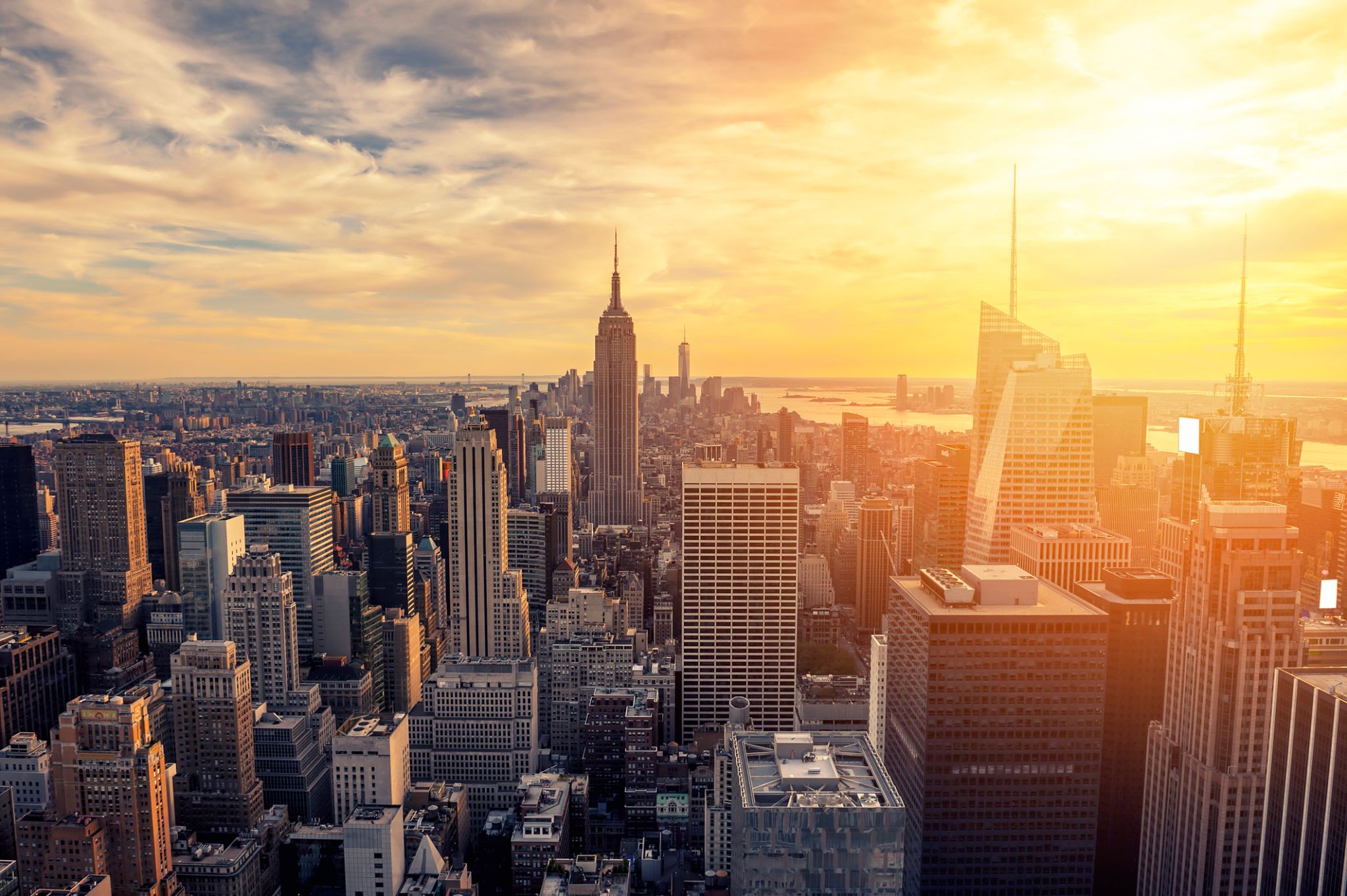
The world famous city of New York , the largest city in the United States, with a population of 8.5 million people, and with suburbs - 20.6 million. New York is the largest economic, political, scientific, and cultural center of the United States. It is rightly called the "Main Gate" in the United States, and the world's largest John F. Kennedy Airport is located here. One of the distinguishing features of the city is the variegated national composition of the population, also called the United States in Miniature.
New York gathered in itself the whole essence of this country: fashion, religion, goods, pace and rhythm of American life. The UN headquarters is located here. There are also many universities in New York, the Academy of Sciences, and many other scientific institutions. Like any other metropolis in the world, New York invites you to visit numerous museums in the city, theaters and concert halls, including the Metropolitan Opera and Carnegie Hall. A great place to relax in New York is Central Park, where you can feed hand-held squirrels, which, to everyone's surprise, are not afraid of people. You can also appreciate the beauty of the famous Empire State Building, with a height of 102 floors, it is an example of skyscrapers, although it was built in 1829-1831. "Must see" in New York, of course, the Statue of Liberty ("Lady Liberty"), located at the mouth of the Hudson River, on the small island of Liberty. And of course, don't forget to stroll along Broadway.
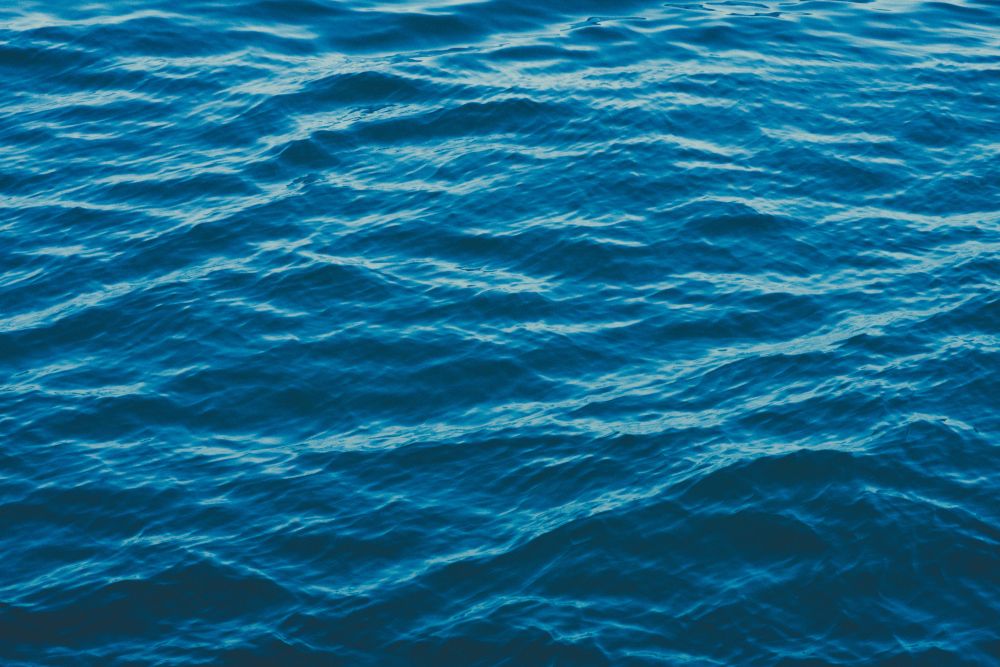
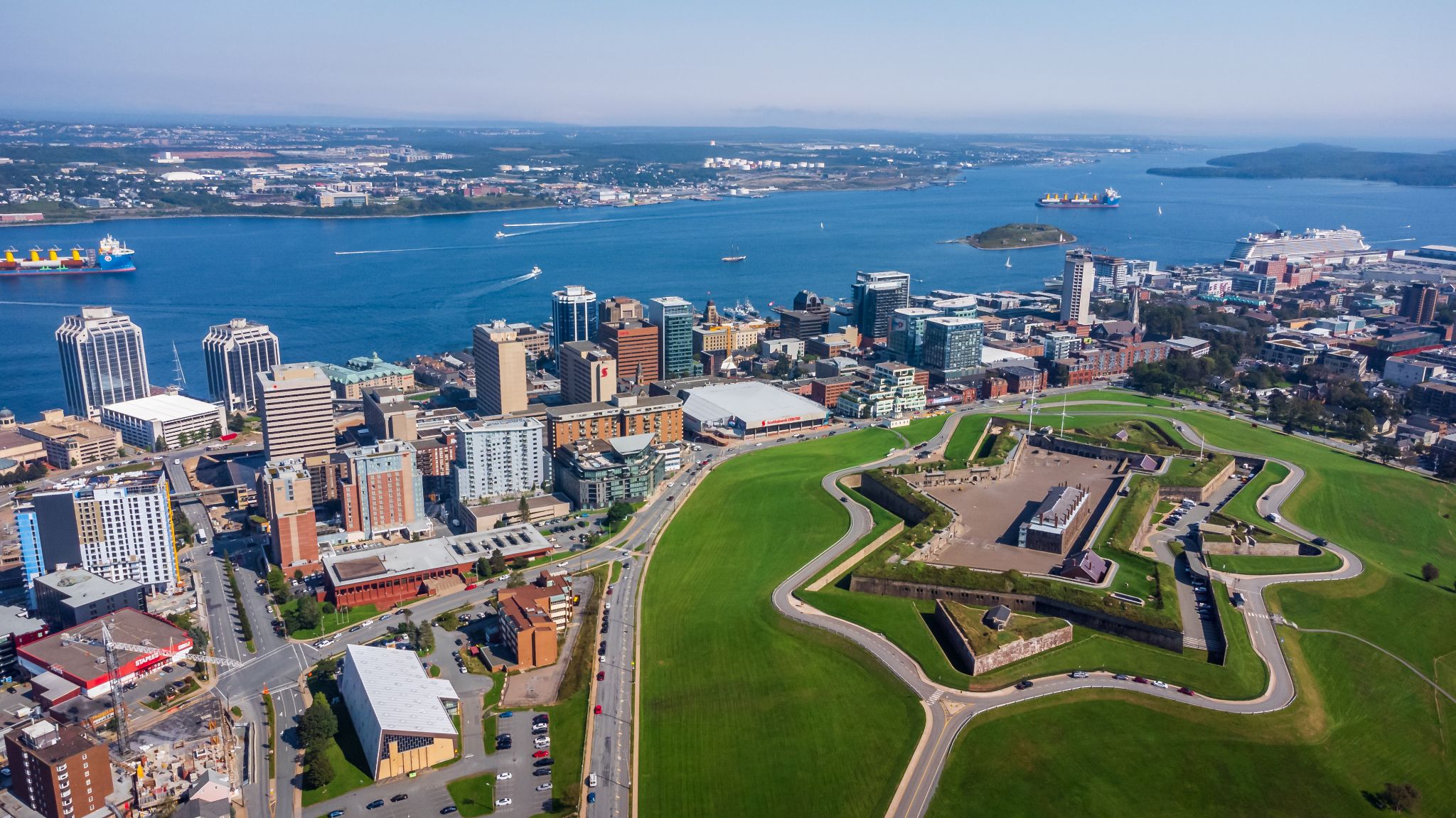
Halifax, also known as the Halifax Regional Municipality (HRM), is the capital of the Canadian province of Nova Scotia. The municipality had a population of 403,131 in 2016, with 316,701 in the urban area centred on Halifax Harbour. The regional municipality consists of four former municipalities that were amalgamated in 1996: Halifax, Dartmouth, Bedford, and Halifax County.
Halifax is a major economic centre in Atlantic Canada with a large concentration of government services and private sector companies. Major employers and economic generators include the Department of National Defence, Dalhousie University, Saint Mary's University, the Halifax Shipyard, various levels of government, and the Port of Halifax. Agriculture, fishing, mining, forestry and natural gas extraction are major resource industries found in the rural areas of the municipality.
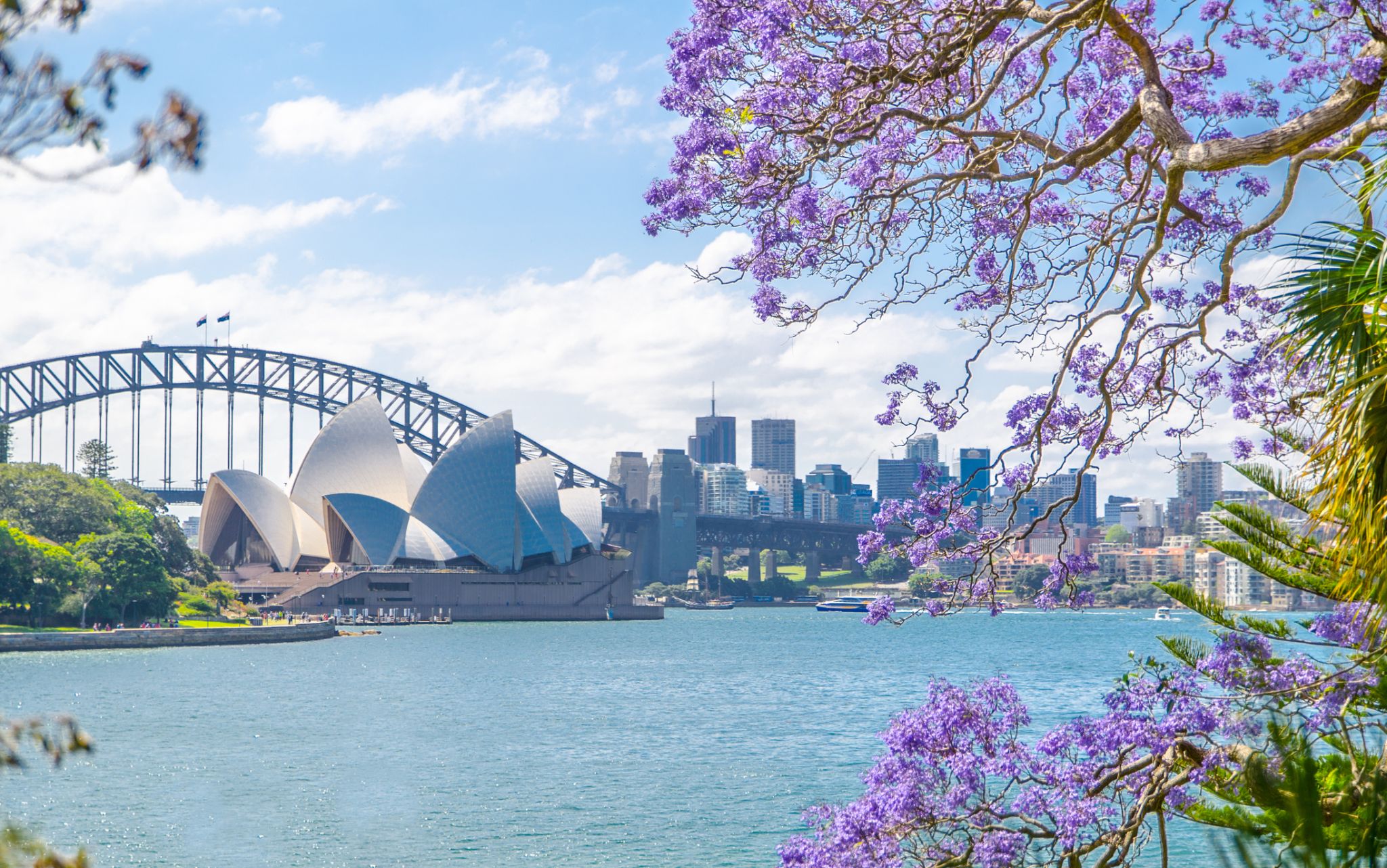
Sydney is the state capital of New South Wales and the most populous city in Australiaand Oceania. Located on Australia's east coast, the metropolis surrounds Port Jackson and extends about 70 km (43.5 mi) on its periphery towards the Blue Mountains to the west, Hawkesbury to the north, and Macarthur to the south. Sydney is made up of 658 suburbs, 40 local government areas and 15 contiguous regions. Residents of the city are known as "Sydneysiders". As of June 2017, Sydney's estimated metropolitan population was 5,131,326, and is home to approximately 65% of the state's population.
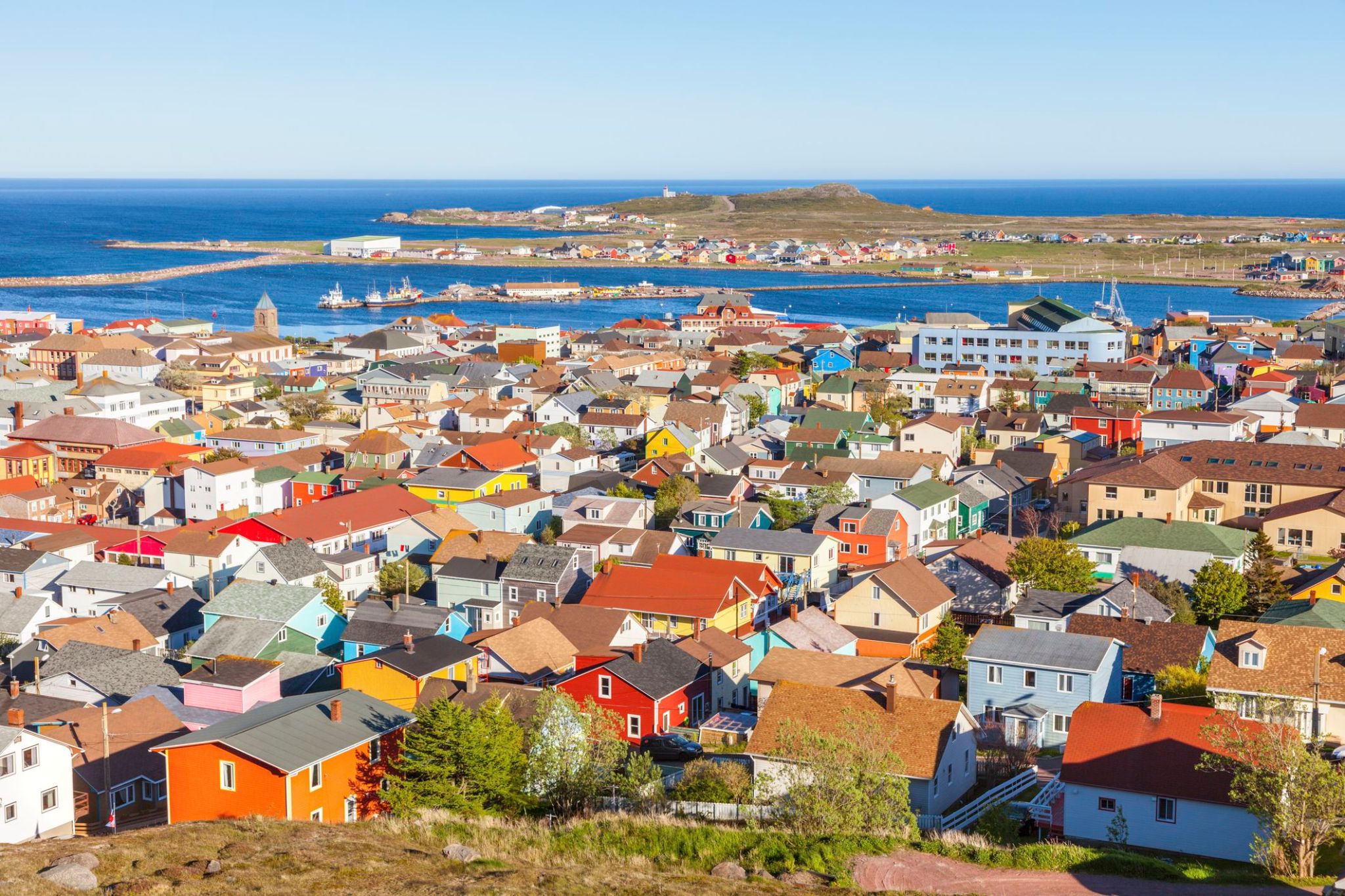
Saint Pierre and Miquelon is a tiny French archipelago located off the coast of Canada’s Newfoundland and Labrador province. It's the last remnant of French territory in North America, where the euro is used, French laws apply, and streets feel distinctly European—with bakeries, baguettes, and colorful houses set against the rugged North Atlantic backdrop.
The archipelago includes two main islands—lively Saint Pierre and the wilder, more spacious Miquelon. Visitors can witness whale migrations, hike scenic trails, or explore on bikes and snowshoes. A curious fact: during the U.S. Prohibition era, Saint Pierre served as a key hub for alcohol smuggling, a story still told in the local museum.
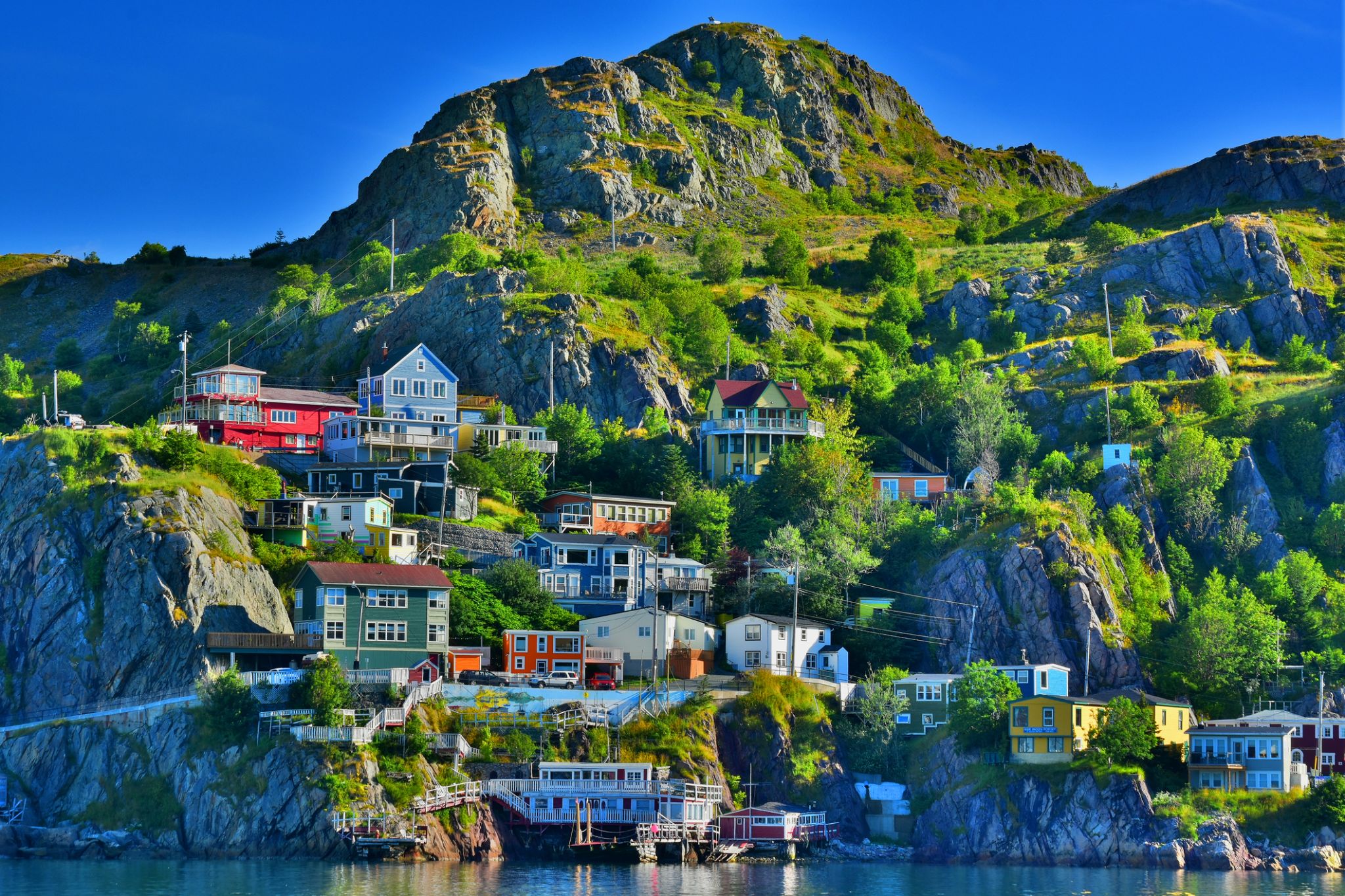
St. John's is the capital and largest city of the Canadian province of Newfoundland and Labrador. It is on the eastern tip of the Avalon Peninsula on the large Canadian island, Newfoundland. The city spans 446.04 square kilometres (172.22 sq mi) and is North America's easternmost city.
Its name has been attributed to the Nativity of John the Baptist, when John Cabot was believed to have sailed into the harbour in 1497 and to a Basque fishing town with the same name. Existing on maps as early as 1519, it is the oldest city in North America. It was officially incorporated as a city in 1888. With a metropolitan population of approximately 219,207 (as of July 1, 2017), the St. John's Metropolitan Area is Canada's 20th largest metropolitan area and the second largest Census Metropolitan Area (CMA) in Atlantic Canada, after Halifax.
The city has a rich history, having played a role in the French and Indian War, the American Revolutionary War, and the War of 1812. Italian inventor Guglielmo Marconi received the first transatlantic wireless signal in St. John's. Its history and culture have made it into an important tourist destination.



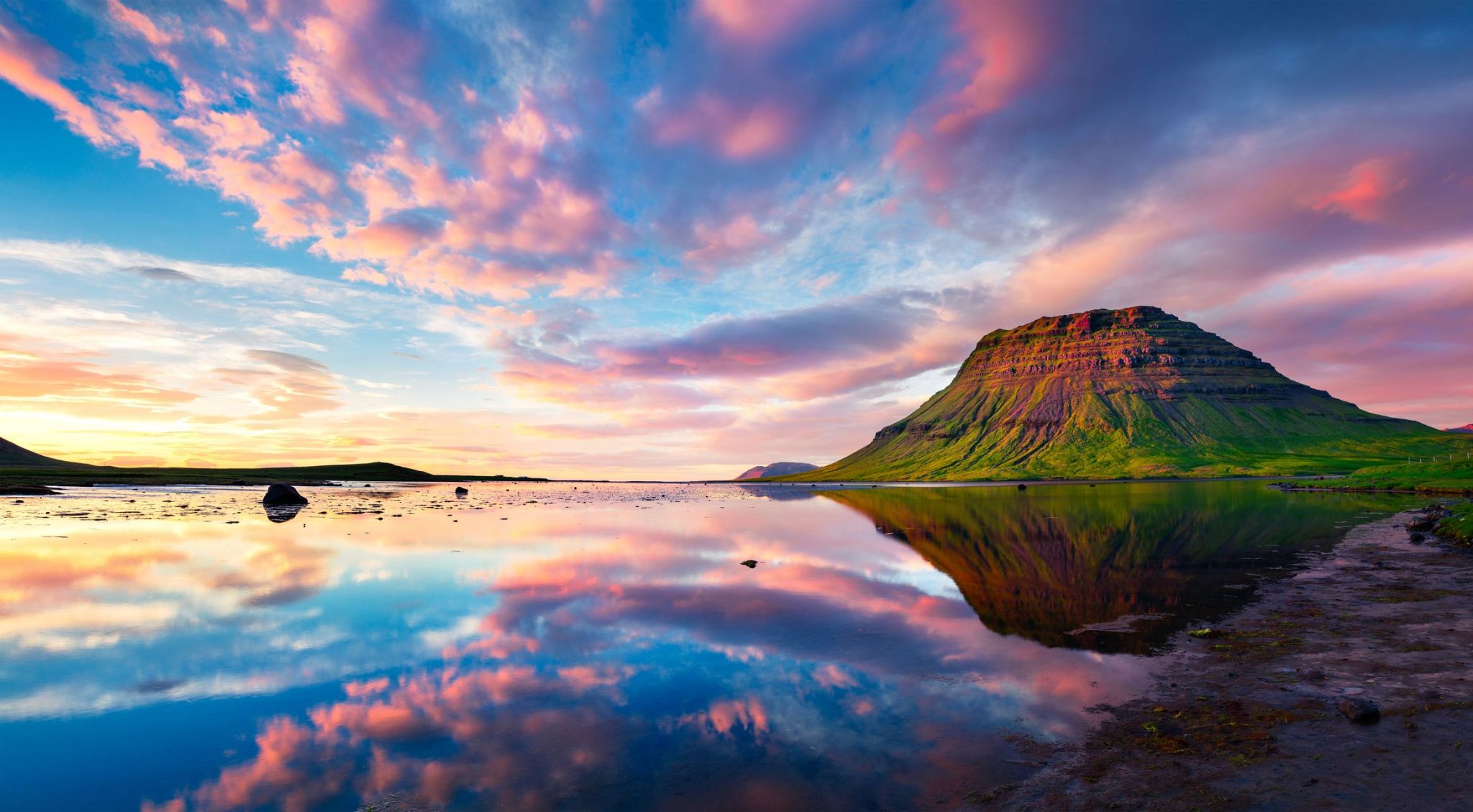
Grundarfjordur is a picturesque town located on the western coast of Iceland, at the foot of the majestic Kirkjufell mountain. This small settlement attracts tourists with its breathtaking views of the fjord and mountainous landscapes, as well as its unique nature, including numerous waterfalls and geothermal springs. One of the main attractions in the region is the Kirkjufell mountain, which became famous due to its distinctive silhouette and popularity among photographers. Grundarfjordur is an excellent starting point for exploring nearby natural landmarks such as Skaftafell National Park and the Skaftatall Glacier.
For those who enjoy active recreation, Grundarfjordur offers great opportunities for fishing, hiking, and birdwatching. The town also has cozy cafes and restaurants serving fresh seafood and traditional Icelandic dishes. Additionally, Grundarfjordur is located near Iceland's main tourist routes, making it a convenient place to stop on the way to the country's famous natural wonders.
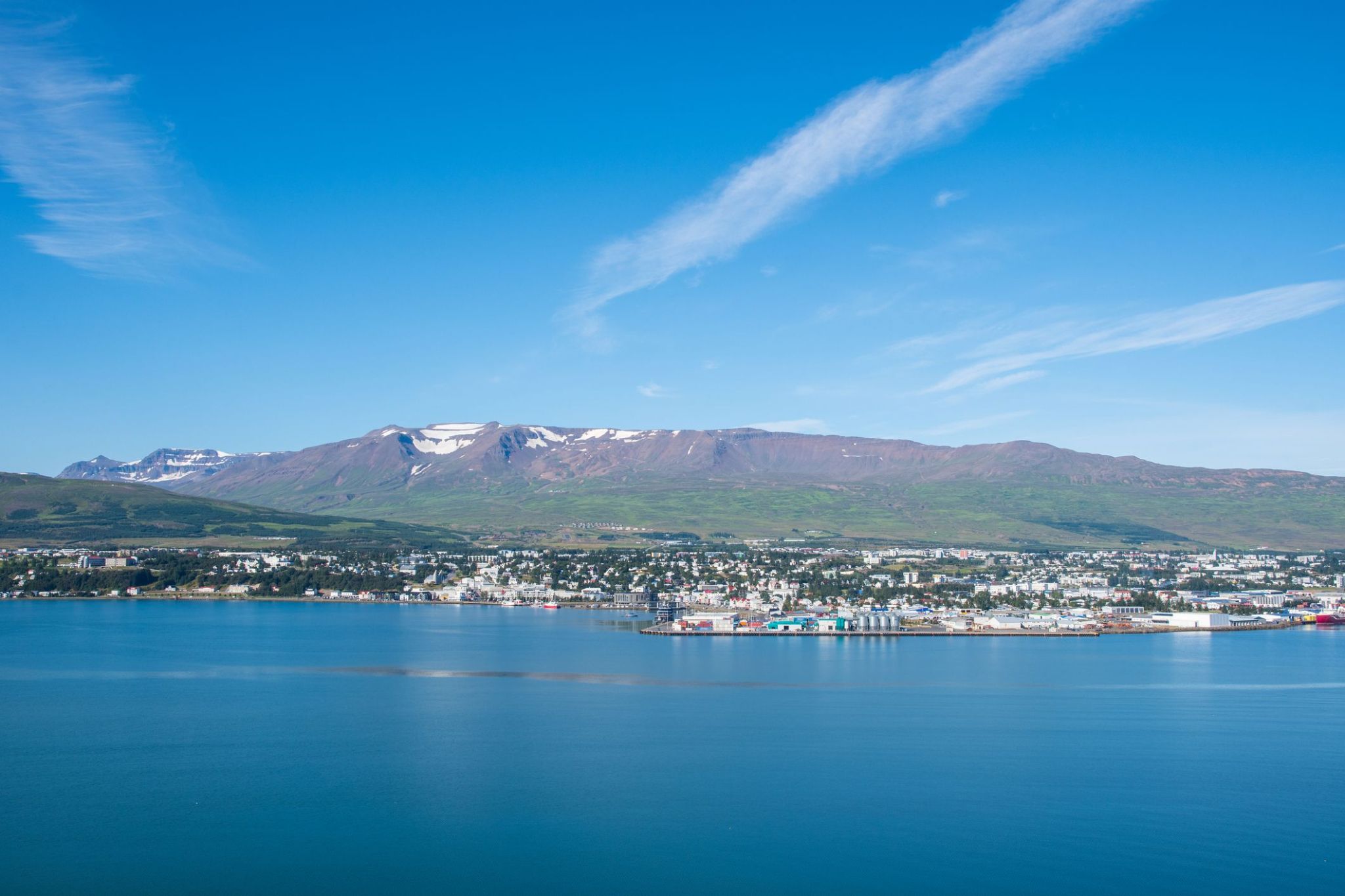
Akureyri is a town in northern Iceland. It is Iceland's Fifth largest municipality.
Nicknamed the Capital of North Iceland, Akureyri is an important port and fishing centre. The area where Akureyri is located was settled in the 9th century but did not receive a municipal charter until 1786. The town was the site of Alliedunits during World War II. Further growth occurred after the war as the Icelandic population increasingly moved to urban areas.
The area has a relatively mild climate because of geographical factors, and the town's ice-free harbour has played a significant role in its history.
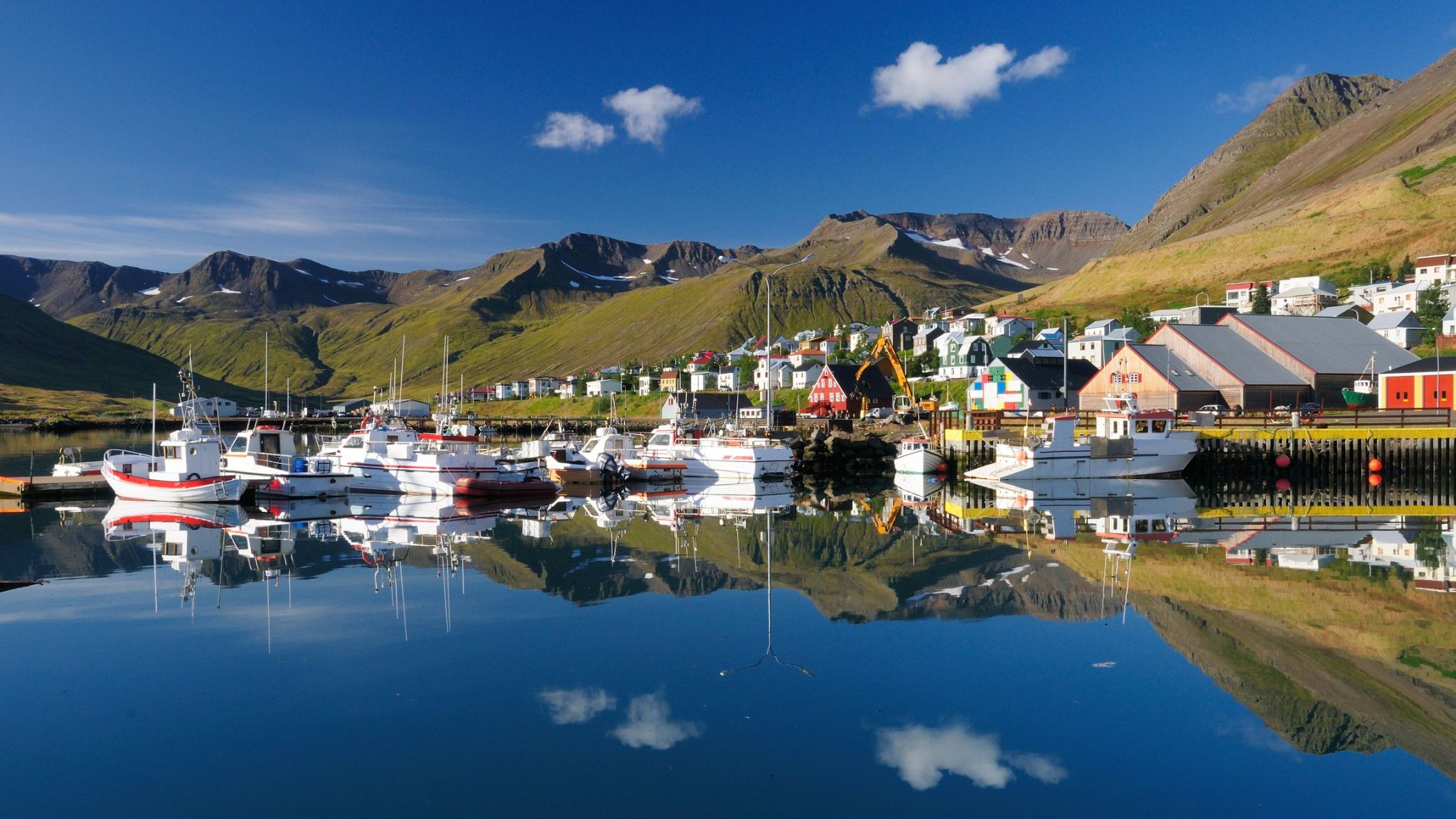
Siglufjordur is a picturesque town in northern Iceland, located in a secluded bay surrounded by majestic mountains. This town, known for its unique atmosphere, is a center of fishing and a historical port. Siglufjordur is famous for its historical fishing museum, where visitors can learn about the history of the local fishing industry and view artifacts related to maritime trade. Its colorful houses and beautiful landscape create a special charm that attracts tourists looking to immerse themselves in the traditional Icelandic atmosphere.
The town is surrounded by stunning mountain landscapes and fjords, which are ideal for hiking and wildlife observation. Visitors can explore nearby trails while enjoying the beauty of the rocky shores and scenic views. Siglufjordur also serves as a starting point for journeys through Northern Iceland, including excursions to hot springs and the opportunity to experience Icelandic flora and fauna.
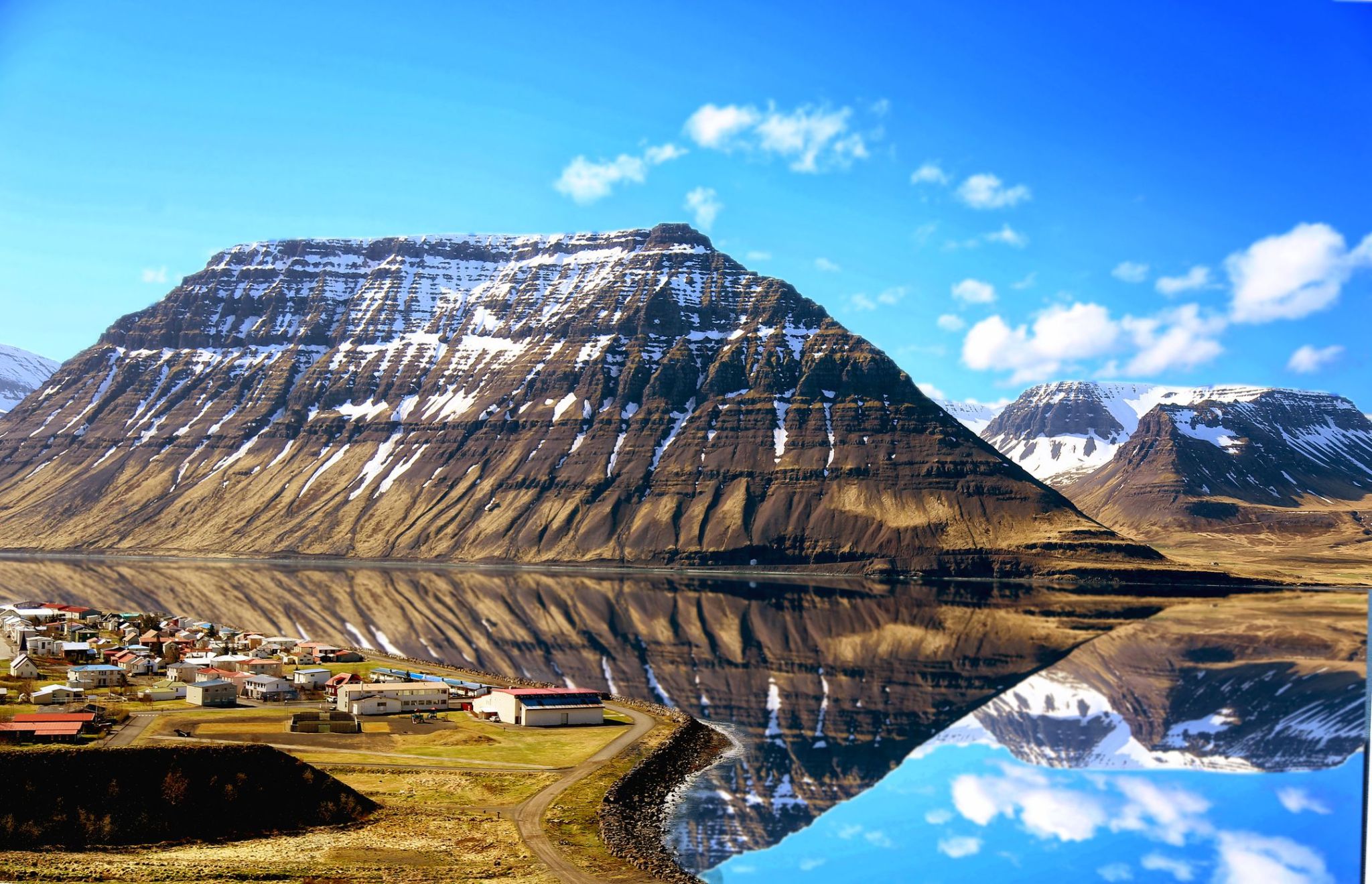
Isafjörður, meaning ice fjord or fjord of ice, ice in plural genitive) is a town in the northwest of Iceland.
The oldest part of Ísafjörður with the town centre is located on a spit of sand, or eyri, in Skutulsfjörður, a fjord which meets the waters of the larger fjord Ísafjarðardjúp. With a population of about 2,600, Ísafjörður is the largest settlement in the peninsula of Vestfirðir (Westfjords) and the administration centre of the Ísafjarðarbær municipality, which includes – besides Ísafjörður – the nearby villages of Hnífsdalur, Flateyri, Suðureyri, and Þingeyri.
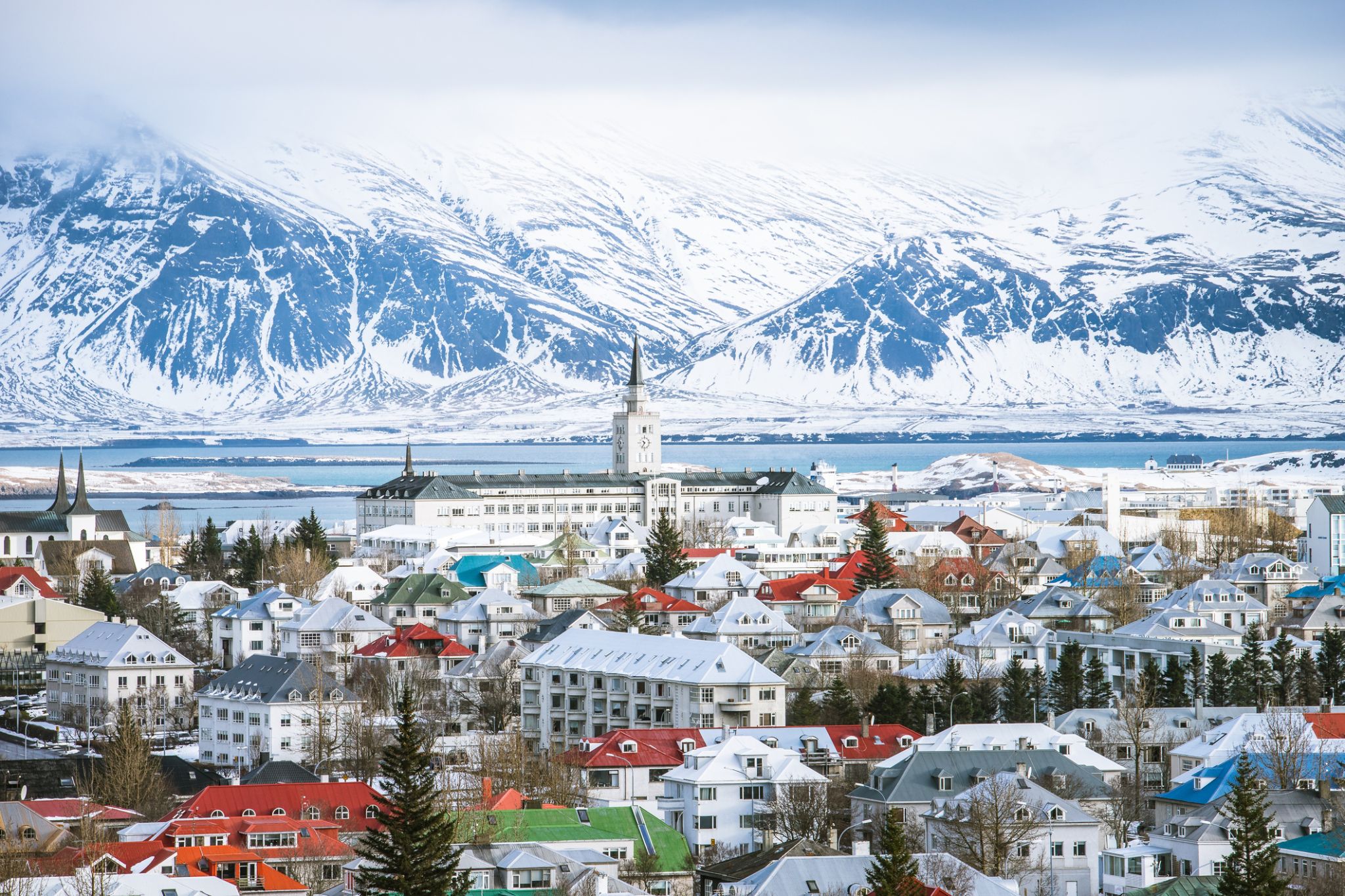
Reykjavík is the capital and largest city of Iceland. It is located in southwestern Iceland, on the southern shore of Faxa Bay. Its latitude is 64°08' N, making it the world's northernmost capital of a sovereign state. With a population of around 123,300 (and over 216,940 in the Capital Region), it is the heart of Iceland's cultural, economic and governmental activity, and is a popular tourist destination.
Reykjavík is believed to be the location of the first permanent settlement in Iceland, which, according to Ingólfr Arnarson, was established in AD 874. Until the 19th century, there was no urban development in the city location. The city was founded in 1786 as an official trading town and grew steadily over the following decades, as it transformed into a regional and later national centre of commerce, population, and governmental activities. It is among the cleanest, greenest, and safest cities in the world.

Reykjavík is the capital and largest city of Iceland. It is located in southwestern Iceland, on the southern shore of Faxa Bay. Its latitude is 64°08' N, making it the world's northernmost capital of a sovereign state. With a population of around 123,300 (and over 216,940 in the Capital Region), it is the heart of Iceland's cultural, economic and governmental activity, and is a popular tourist destination.
Reykjavík is believed to be the location of the first permanent settlement in Iceland, which, according to Ingólfr Arnarson, was established in AD 874. Until the 19th century, there was no urban development in the city location. The city was founded in 1786 as an official trading town and grew steadily over the following decades, as it transformed into a regional and later national centre of commerce, population, and governmental activities. It is among the cleanest, greenest, and safest cities in the world.
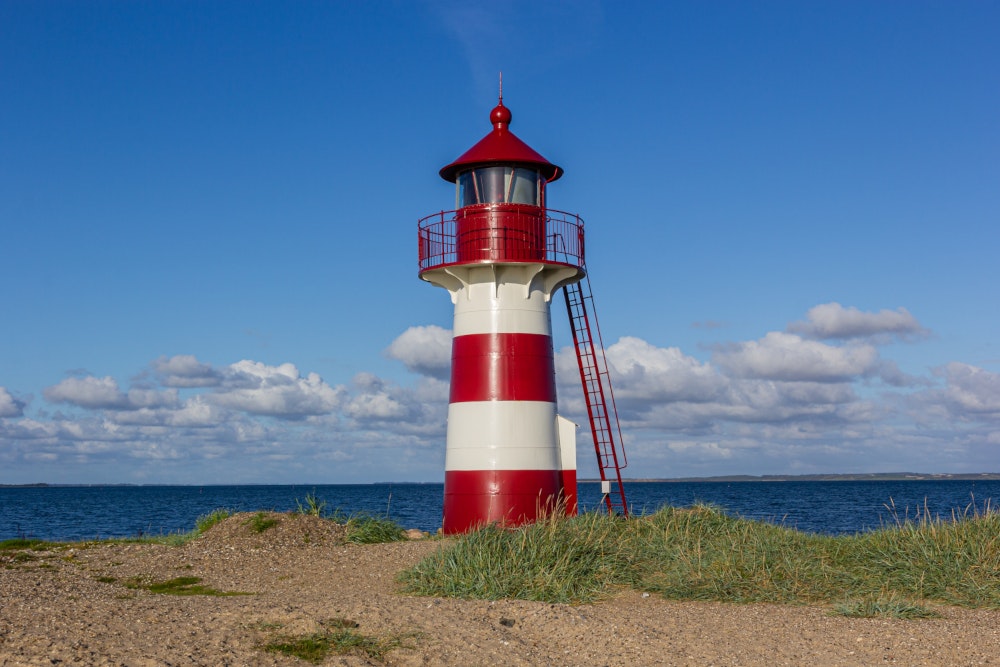
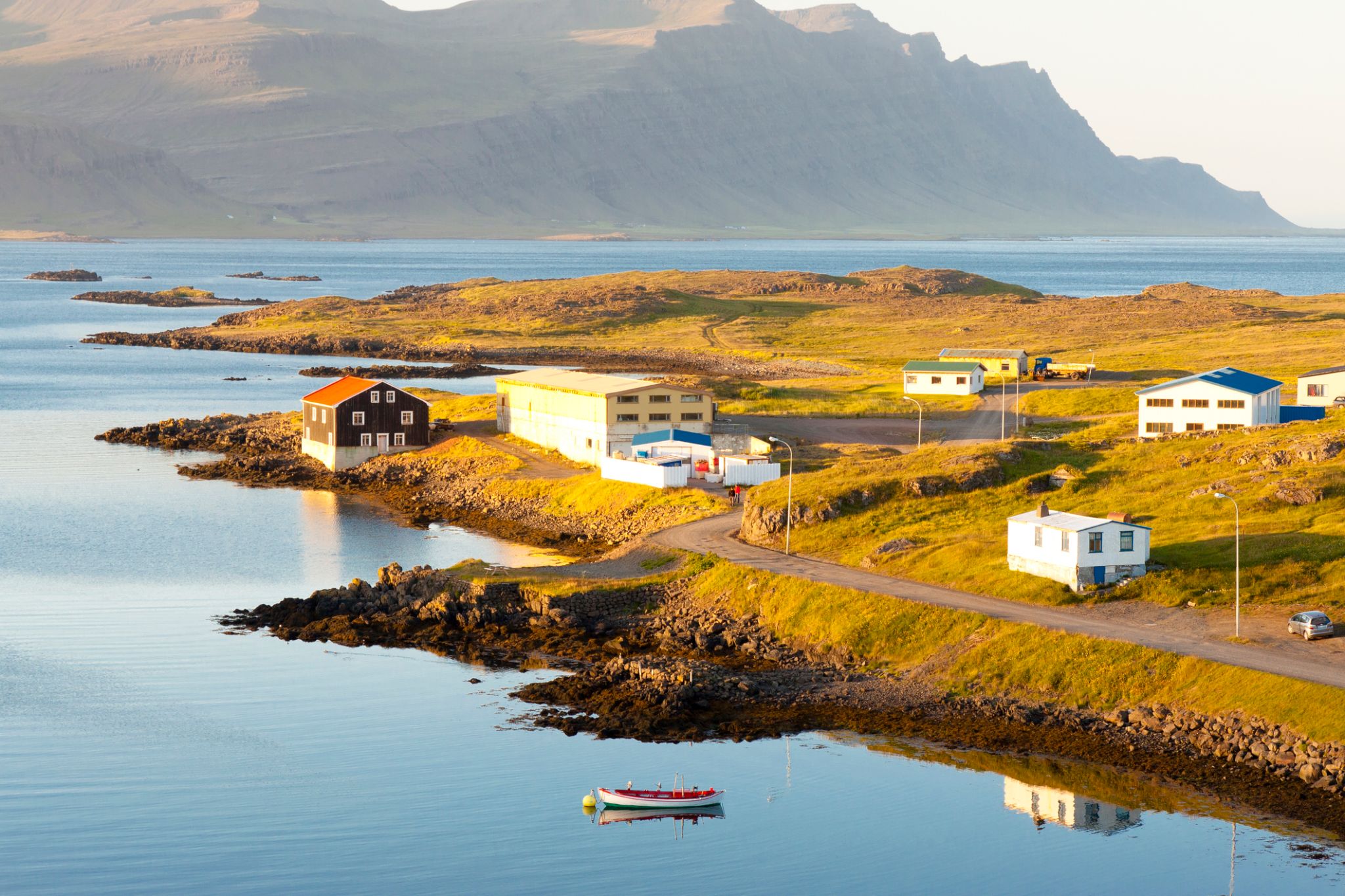

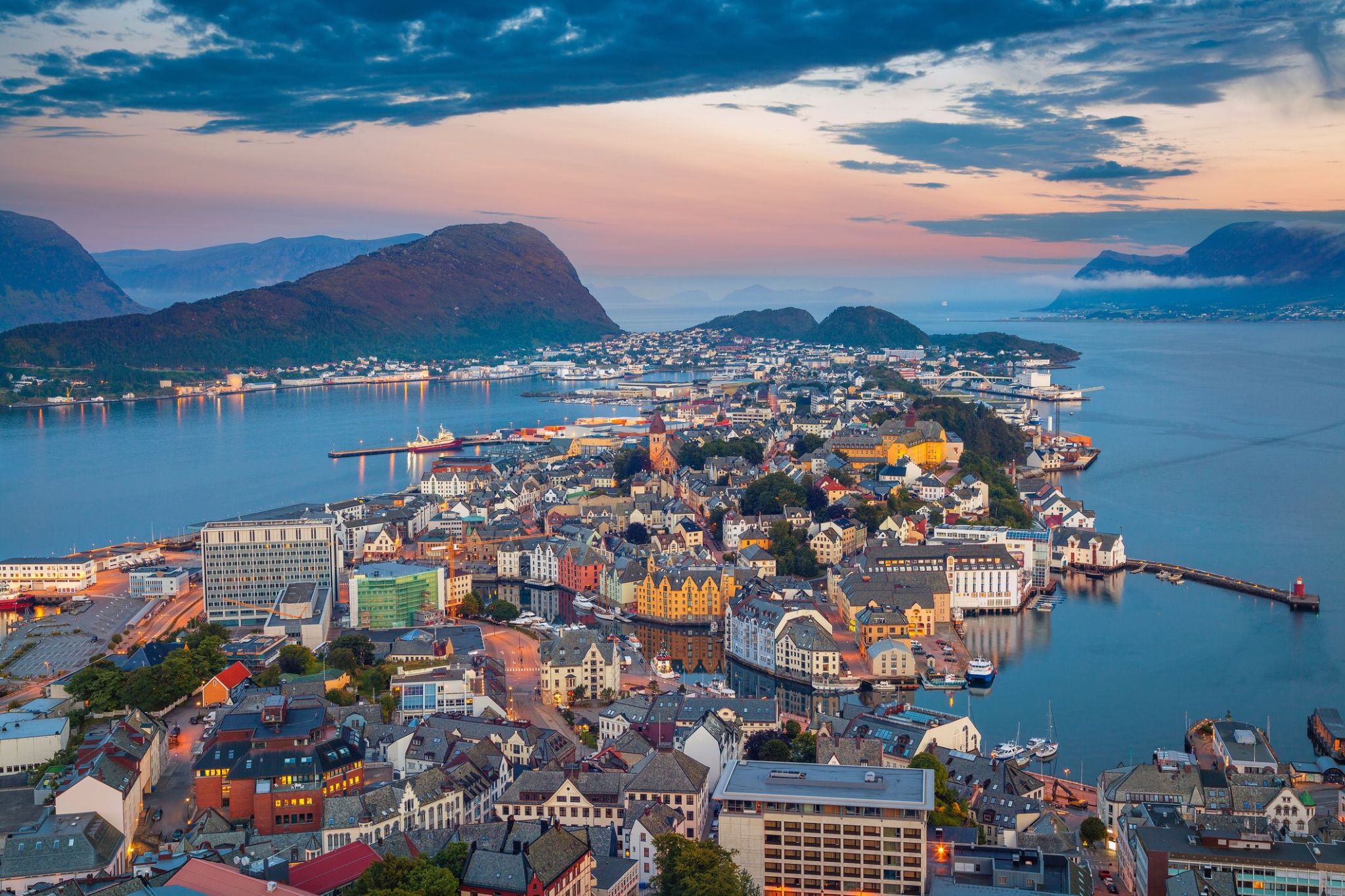
Nestled between majestic fjords and the open sea, Ålesund captivates visitors with its unique blend of natural beauty and distinctive architecture. Known for its stunning Art Nouveau style, rebuilt after a devastating fire in 1904, the town offers a charming atmosphere where colorful buildings line the waterfront, creating a picturesque setting unlike any other in Norway.
Adventurers and culture lovers alike find plenty to enjoy in Ålesund. From hiking up the viewpoint at Aksla Hill for panoramic views of the archipelago to exploring local museums and fresh seafood markets, this coastal town invites travelers to immerse themselves in Norway’s maritime heritage and breathtaking landscapes. Whether cruising the nearby fjords or wandering the narrow streets, every moment in Ålesund promises memorable discoveries.
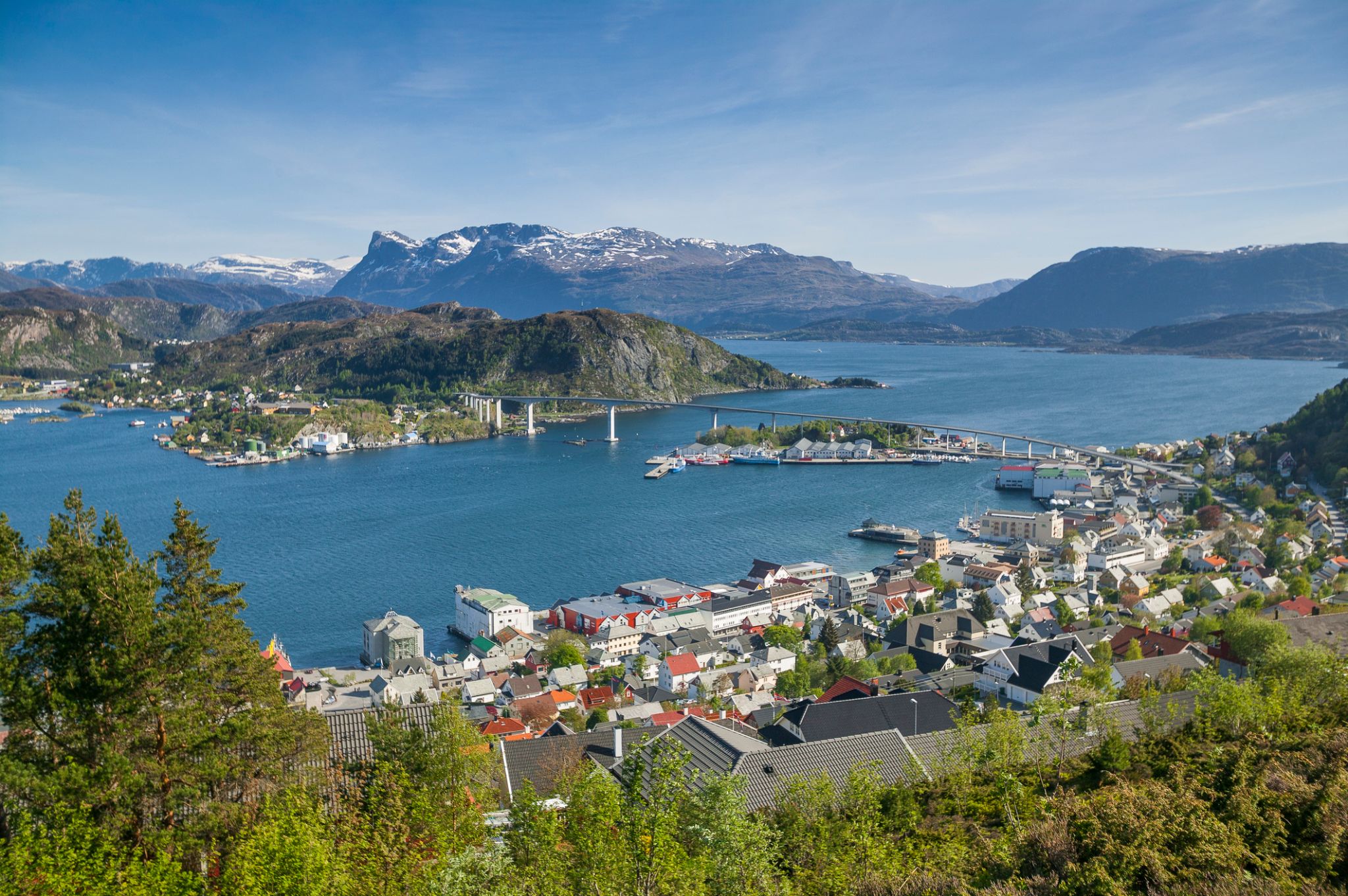
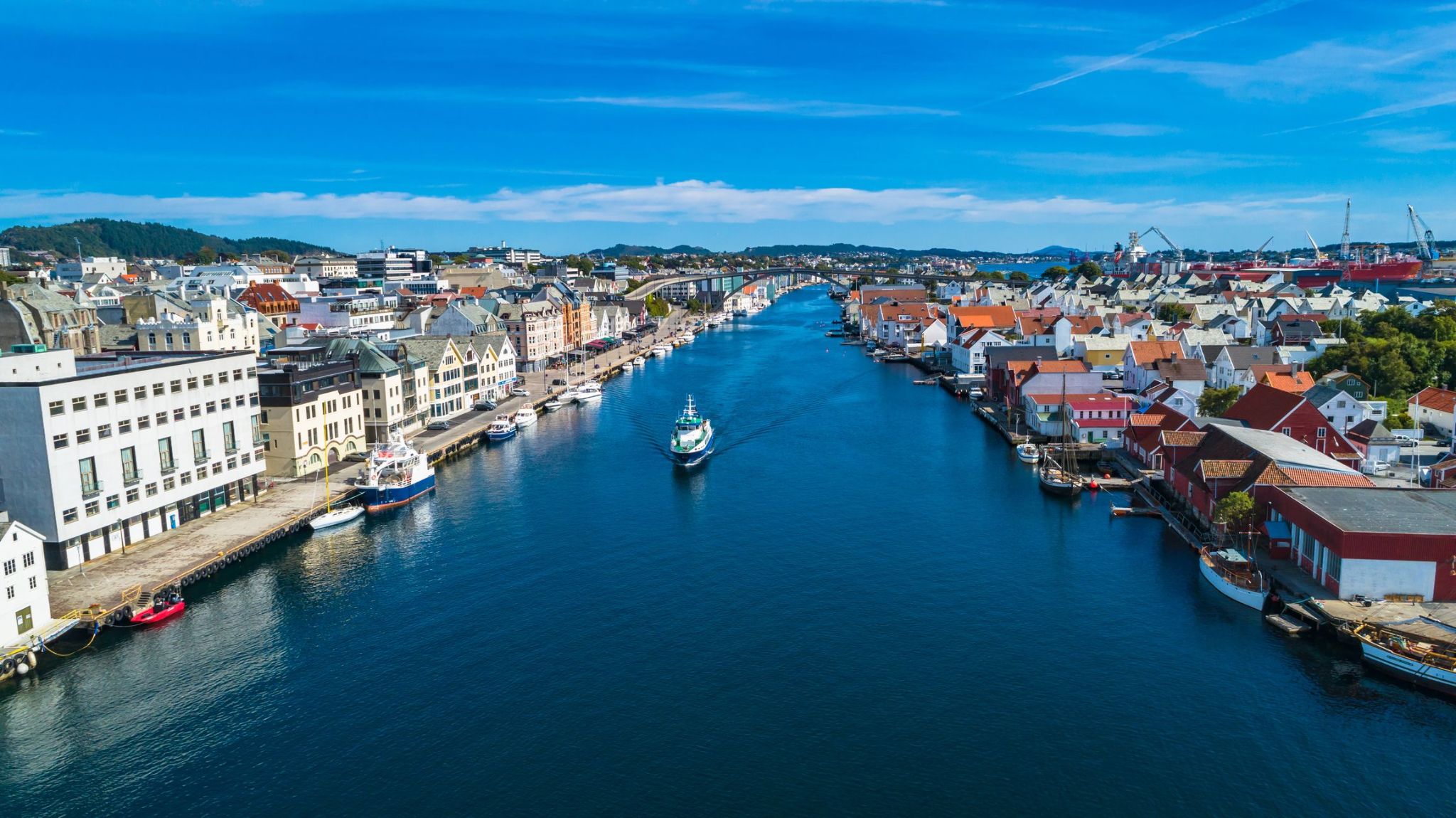
The cozy town of Haugesund on Norway's southwest coast welcomes visitors with fresh sea air and the true atmosphere of the Norwegian coast. Here, the stories of the Vikings come alive: it was near Haugesund that important trade routes once passed, and nearby stands the Haraldshaugen monument, erected in honor of Norway’s first king. The town’s streets are filled with cozy cafes, boutiques, and galleries, while the pier with white boats and fishermen’s houses invites you to enjoy peaceful seaside walks.
Every year, Haugesund hosts film festivals, maritime celebrations, and music events, keeping the town lively and warm. It’s the perfect place to discover Norwegian traditions, taste fresh seafood straight from the fishing boats, and take a walk along the North Sea coast, enjoying views of green hills and cliffs diving into the ocean.

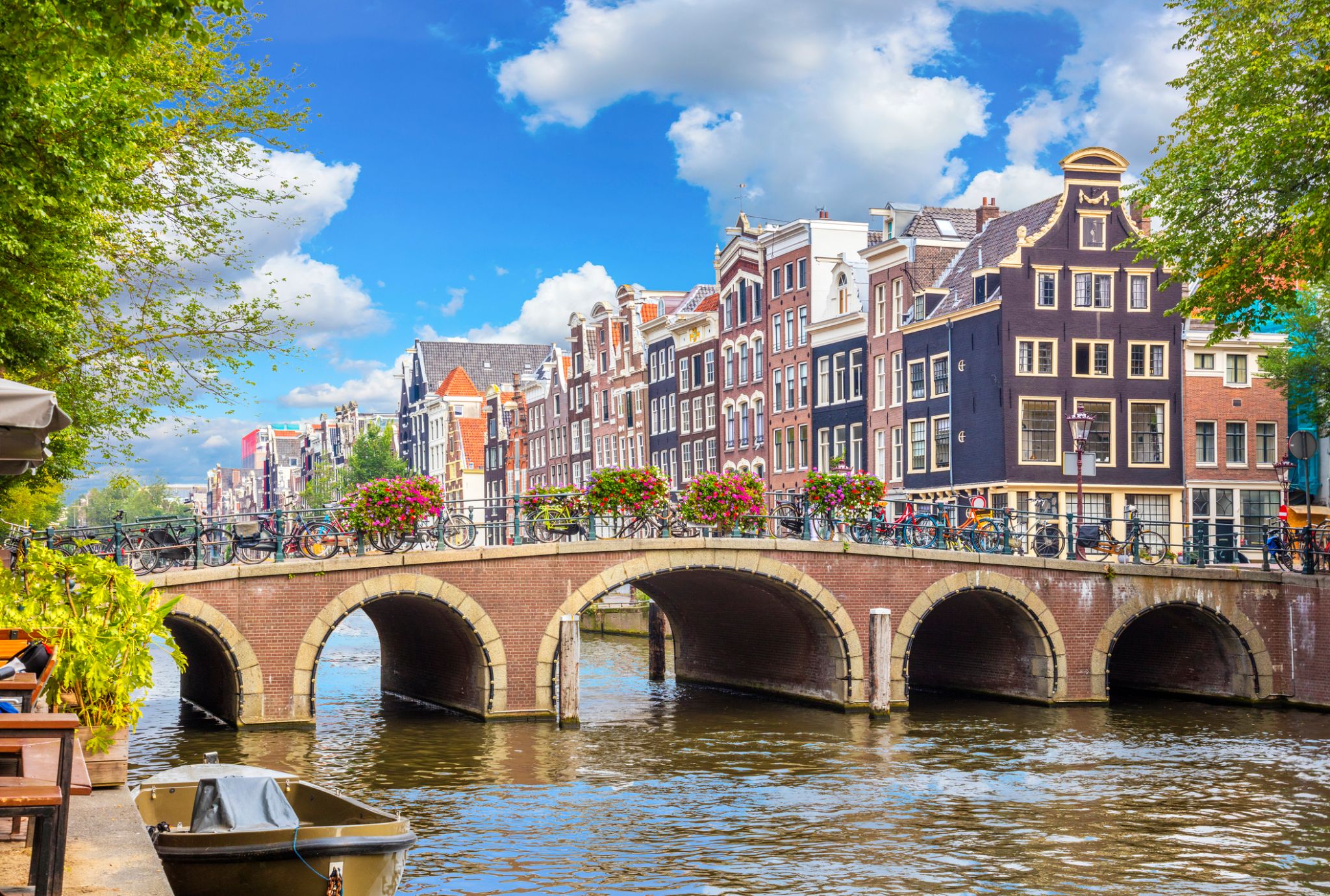
Amsterdam is the capital city and most populous municipality of the Netherlands. Its status as the capital is mandated by the Constitution of the Netherlands, although it is not the seat of the government, which is The Hague. Amsterdam has a population of 851,373 within the city proper, 1,351,587 in the urban area] and 2,410,960 in the metropolitan area. The city is located in the province of North Holland in the west of the country but is not its capital, which is Haarlem. The metropolitan area comprises much of the northern part of the Randstad, one of the larger conurbations in Europe, with a population of approximately 8 million.

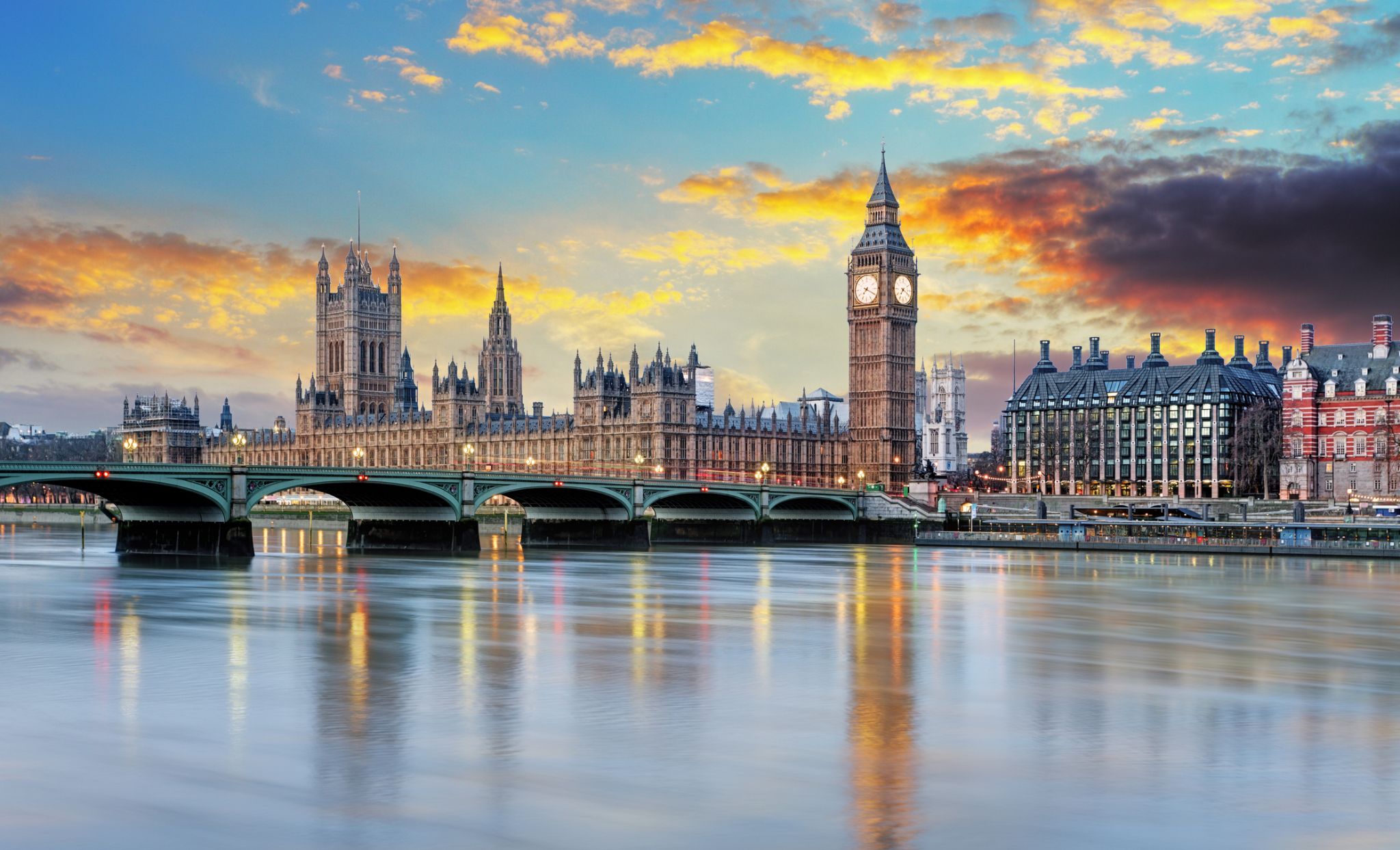
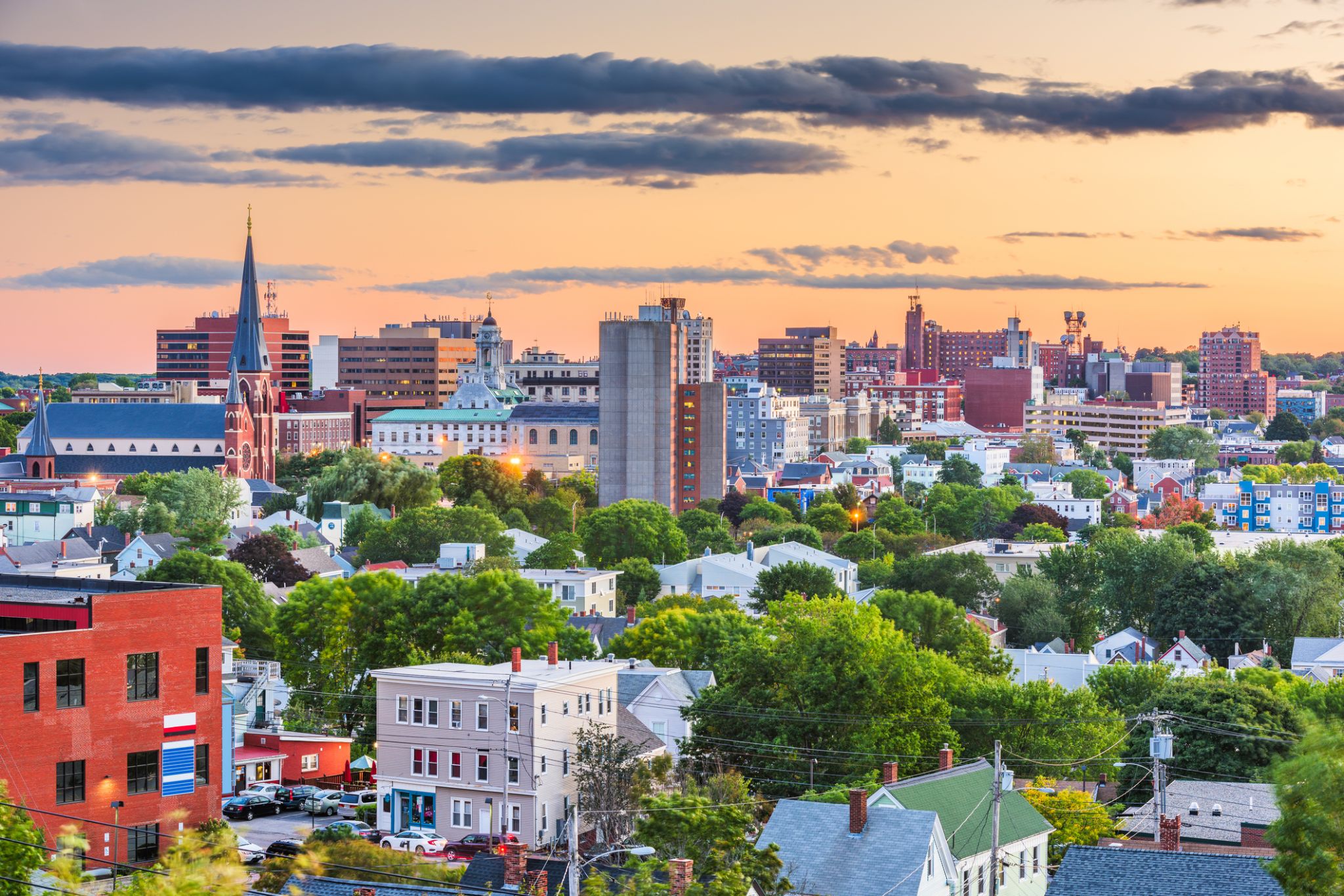



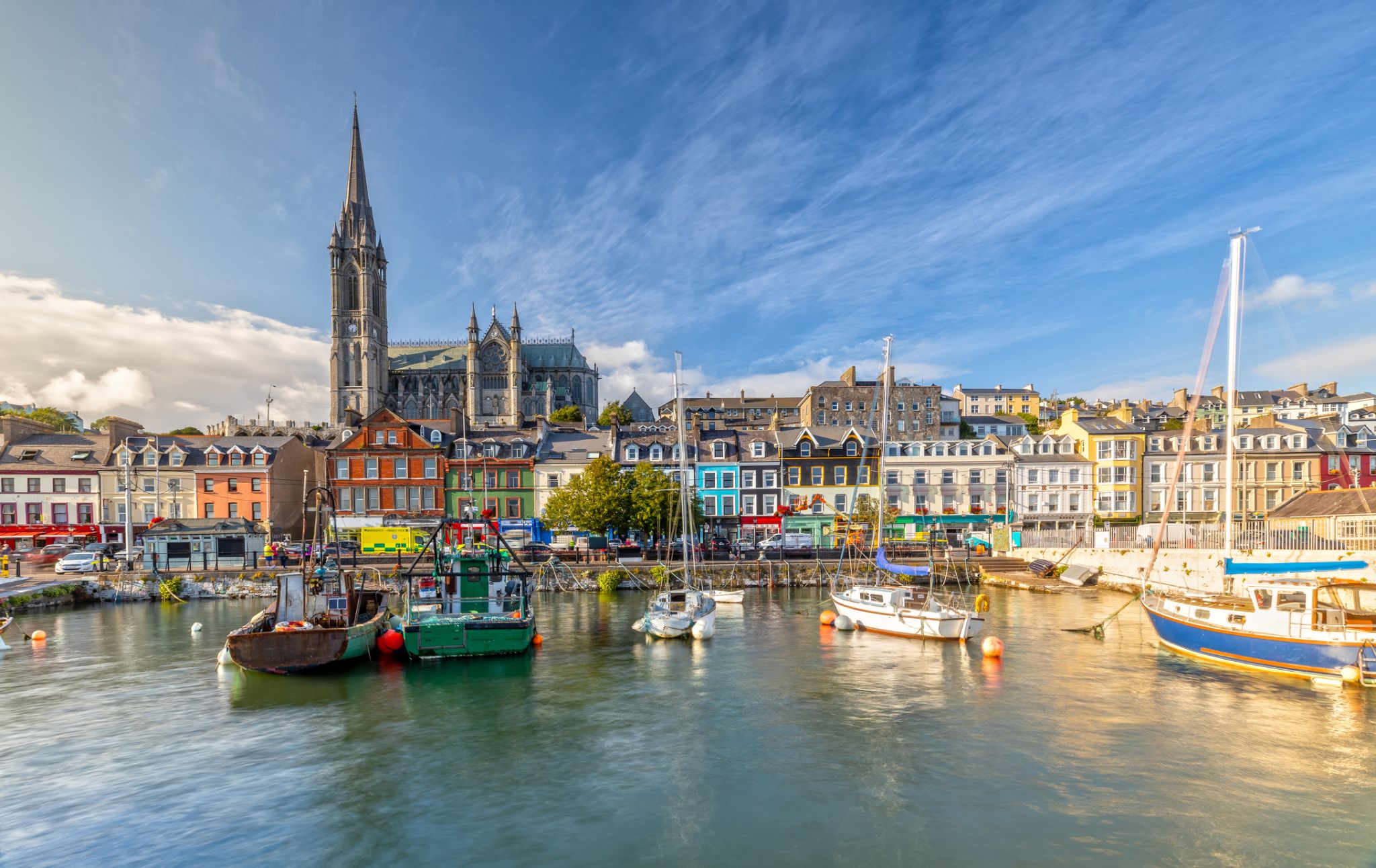
Cork is a city in south-west Ireland, in the province of Munster, which had a population of 125,657 in 2016.
The city is on the River Lee which splits into two channels at the western end and divides the city centre into islands. They reconverge at the eastern end where the quays and docks along the river banks lead outwards towards Lough Mahon and Cork Harbour, one of the largest natural harbours in the world.
Expanded by Viking invaders around 915, the city's charter was granted by Prince John, as Lord of Ireland, in 1185. Cork city was once fully walled, and the remnants of the old medieval town centre can be found around South and North Main streets.
The third largest city on the island of Ireland, the city's cognomen of "the rebel city" originates in its support for the Yorkist cause in the Wars of the Roses. Corkonians often refer to the city as "the real capital", a reference to its opposition to the Anglo-Irish Treaty in the Irish Civil War.

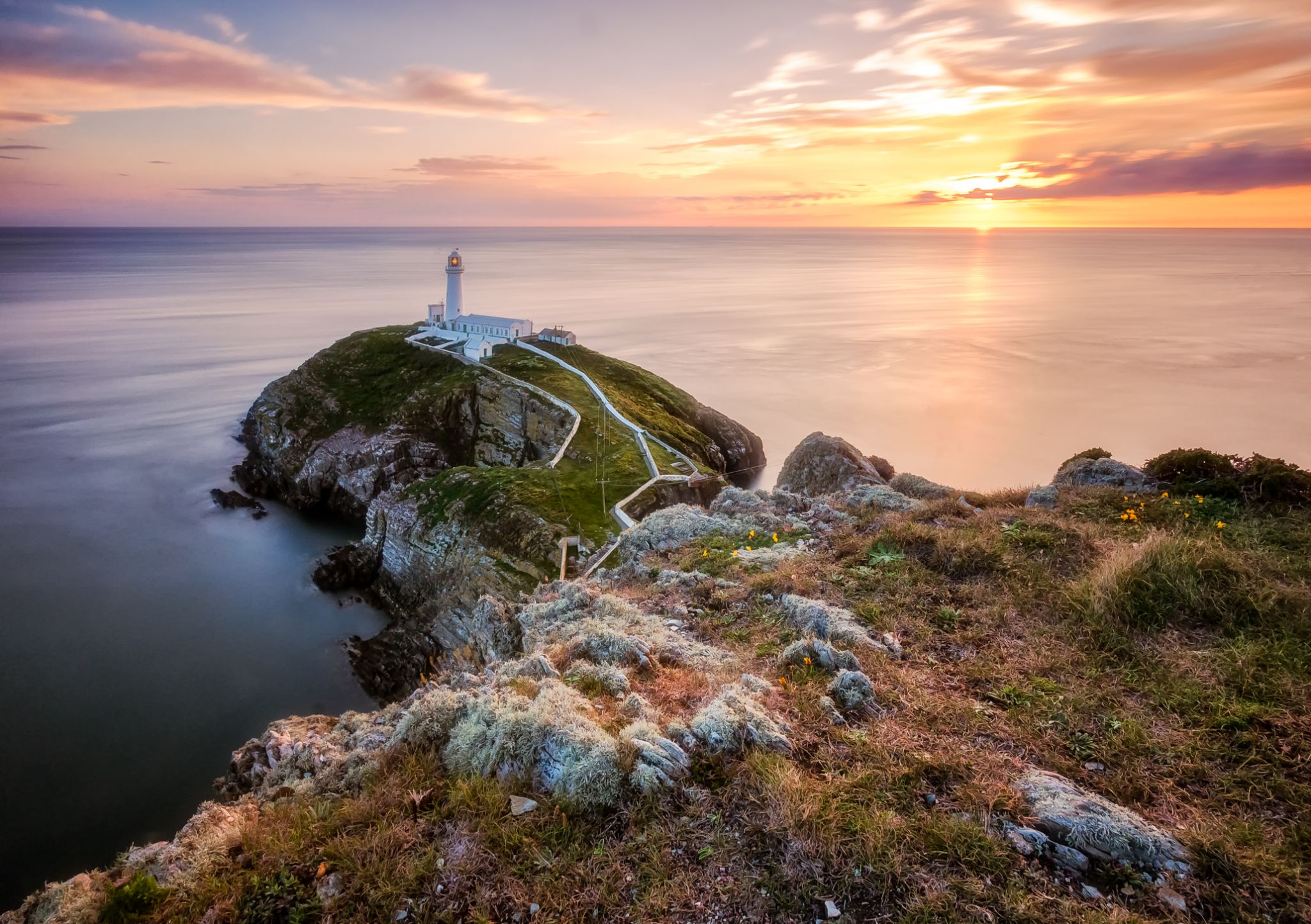

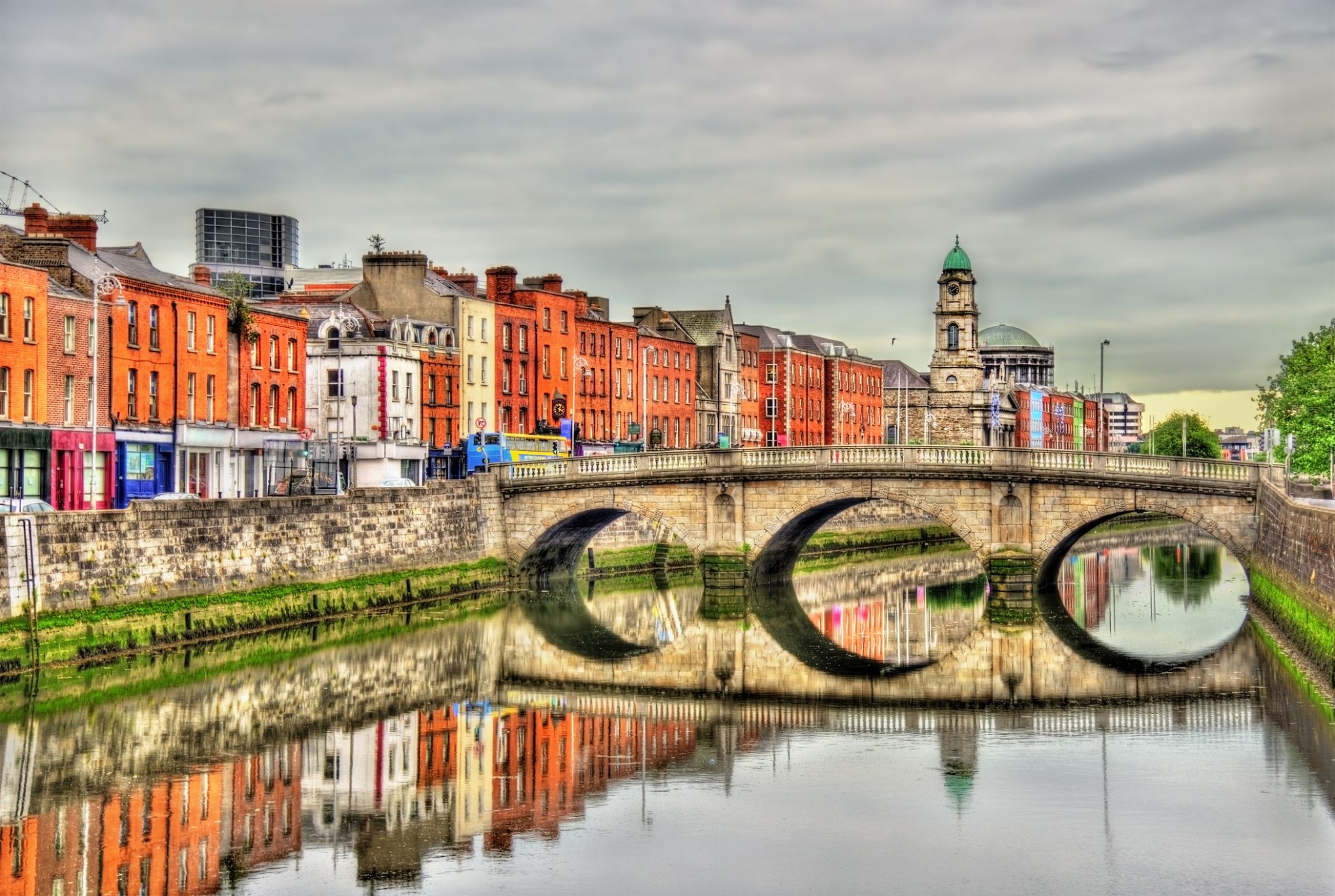
Dublin is the capital of, and largest city in, Ireland. It is on the east coast of Ireland, in the province of Leinster, at the mouth of the River Liffey, and is bordered on the south by the Wicklow mountains. It has an urban area population of 1,173,179, while the population of the Dublin Region (formerly County Dublin), as of 2016, was 1,347,359, and the population of the Greater Dublin area was 1,904,806.
There is archaeological debate regarding precisely where Dublin was established by Celtic-speaking people in the 7th century AD. Later expanded as a Viking settlement, the Kingdom of Dublin, the city became Ireland's principal settlement following the Norman invasion. The city expanded rapidly from the 17th century and was briefly the second largest city in the British Empire before the Acts of Union in 1800. Following the partition of Ireland in 1922, Dublin became the capital of the Irish Free State, later renamed Ireland.
Dublin is a historical and contemporary centre for education, the arts, administration and industry. As of 2018 the city was listed by the Globalization and World Cities Research Network (GaWC) as a global city, with a ranking of "Alpha -", which places it amongst the top thirty cities in the world.
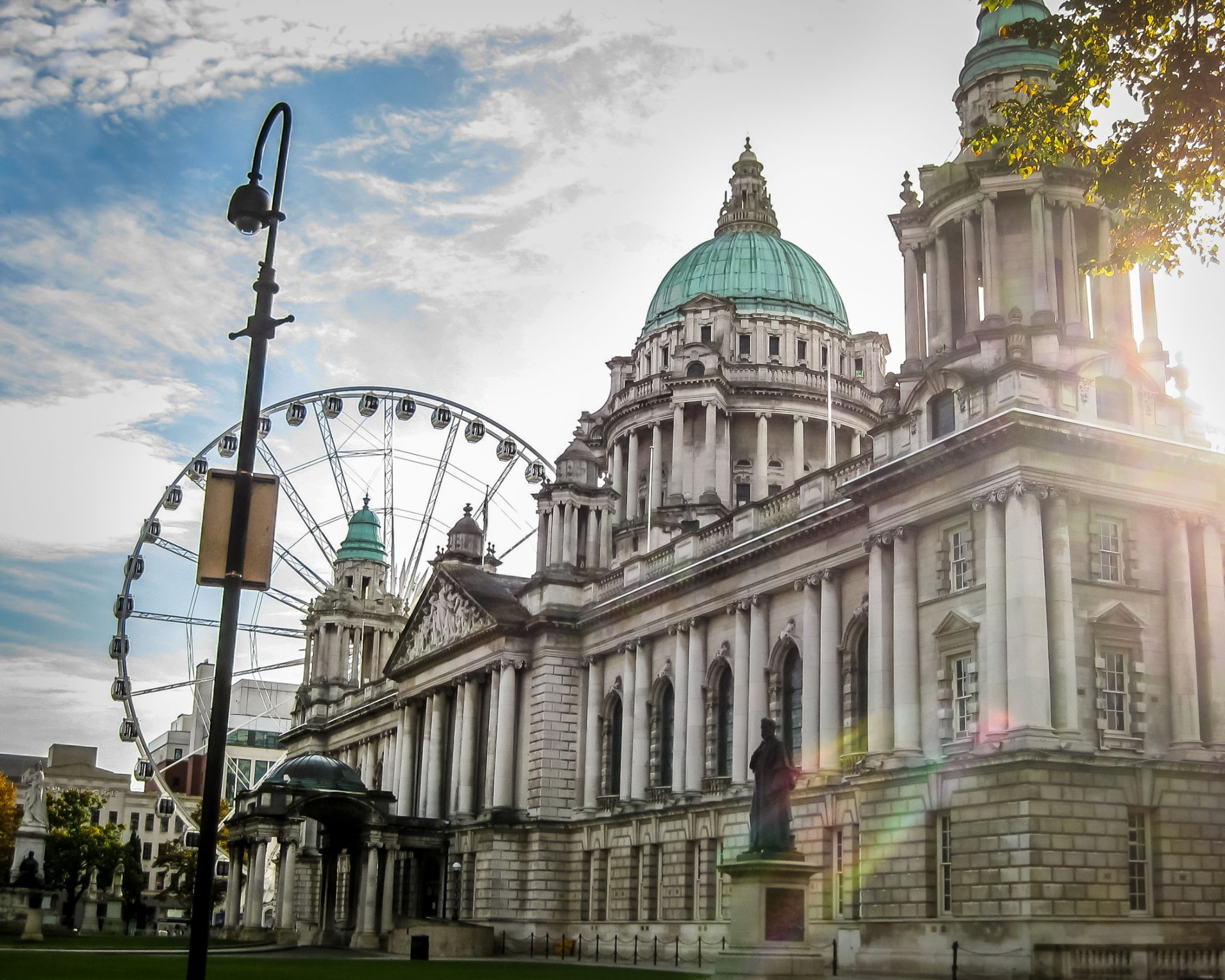
Belfast is a port city in the United Kingdom and the capital city of Northern Ireland, on the banks of the River Lagan on the east coast of Ireland. It is the largest city in Northern Ireland and second largest on the island of Ireland. It had a population of 333,871 in 2015.
By the early 1800s Belfast was a major port. It played a key role in the Industrial Revolution, becoming the biggest linen producer in the world, earning it the nickname "Linenopolis". By the time it was granted city status in 1888, it was a major centre of Irish linen production, tobacco-processing and rope-making. Shipbuilding was also a key industry; the Harland and Wolff shipyard, where the RMS Titanic was built, was the world's biggest shipyard. It also has a major aerospace and missiles industry. Industrialisation and the inward migration it brought made Belfast Ireland's biggest city and it became the capital of Northern Ireland following the Partition of Ireland in 1922. Its status as a global industrial centre ended in the decades after the Second World War.
Belfast suffered greatly in the Troubles, and in the 1970s and 1980s was one of the world's most dangerous cities. However, the city is now considered to be one of the safest within the United Kingdom. Throughout the 21st century, the city has seen a sustained period of calm, free from the intense political violence of former years and has benefitted from substantial economic and commercial growth. Belfast remains a centre for industry, as well as the arts, higher education, business, and law, and is the economic engine of Northern Ireland. Belfast is still a major port, with commercial and industrial docks dominating the Belfast Lough shoreline, including the Harland and Wolff shipyard. It is served by two airports: George Best Belfast City Airport, and Belfast International Airport 15 miles (24 km) west of the city. It is listed by the Globalization and World Cities Research Network (GaWC) as a Gamma global city.
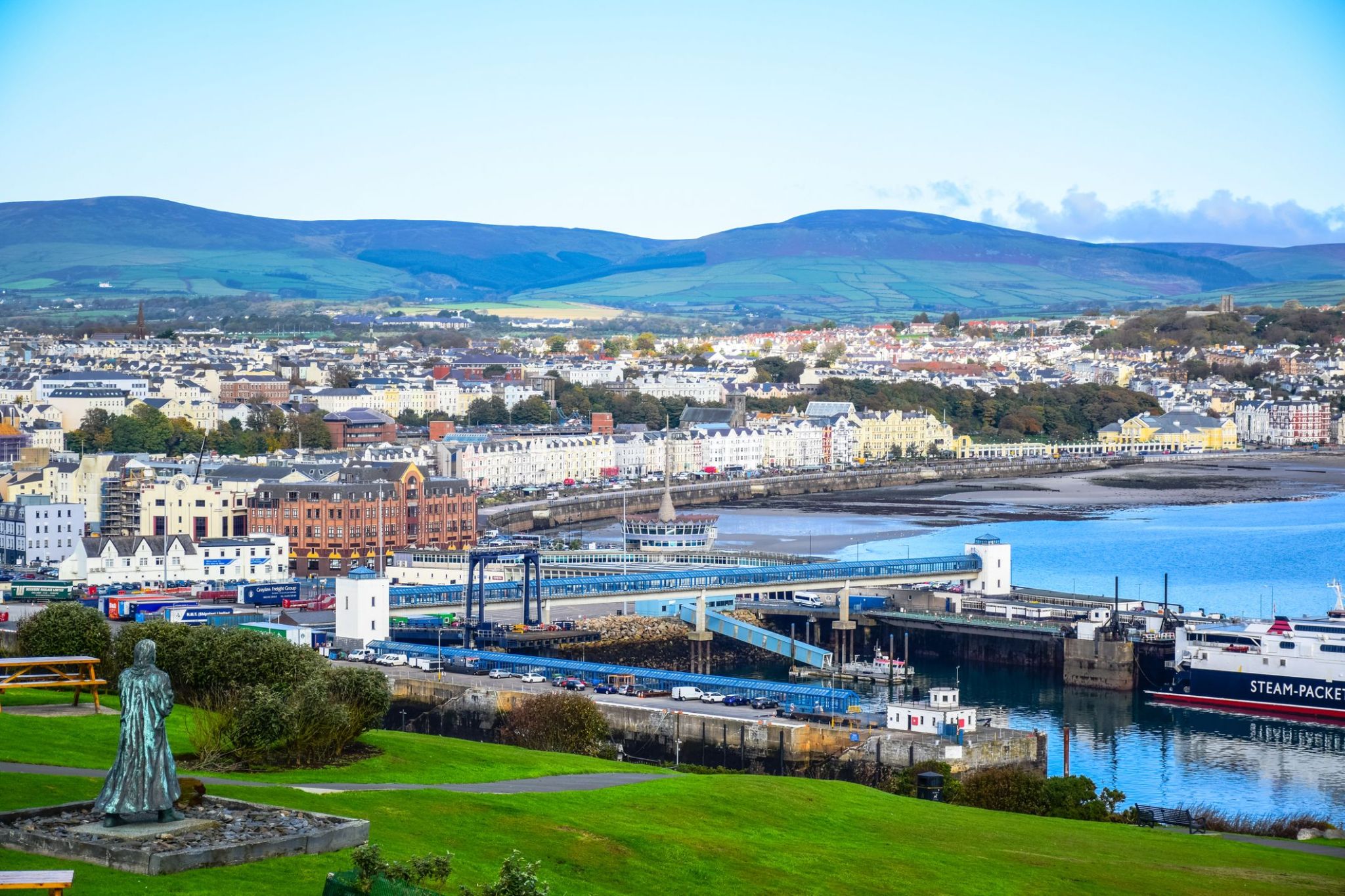
Douglas is the capital and largest city of the Isle of Man, located in the Irish Sea. The city, rich in maritime history, is known for its picturesque coastal scenery and charming atmosphere. In Douglas, you can take a stroll along the historic promenade, lined with old buildings and modern cafes, and visit the local museum that showcases the island's maritime culture and traditions. The city is also famous for its architectural landmarks, such as the castle and historic Victorian buildings, which add to its unique charm.
The surrounding areas of Douglas offer excellent opportunities for outdoor activities, including hiking trails, coastal walks, and bike tours. The Isle of Man is renowned for its unique nature, and travelers can enjoy views of hills, scenic bays, and traditional villages along the way. This corner of Britain attracts tourists with its unique culture, ancient traditions, and beautiful natural landscapes, making it a perfect spot for a relaxing getaway and exciting exploration.



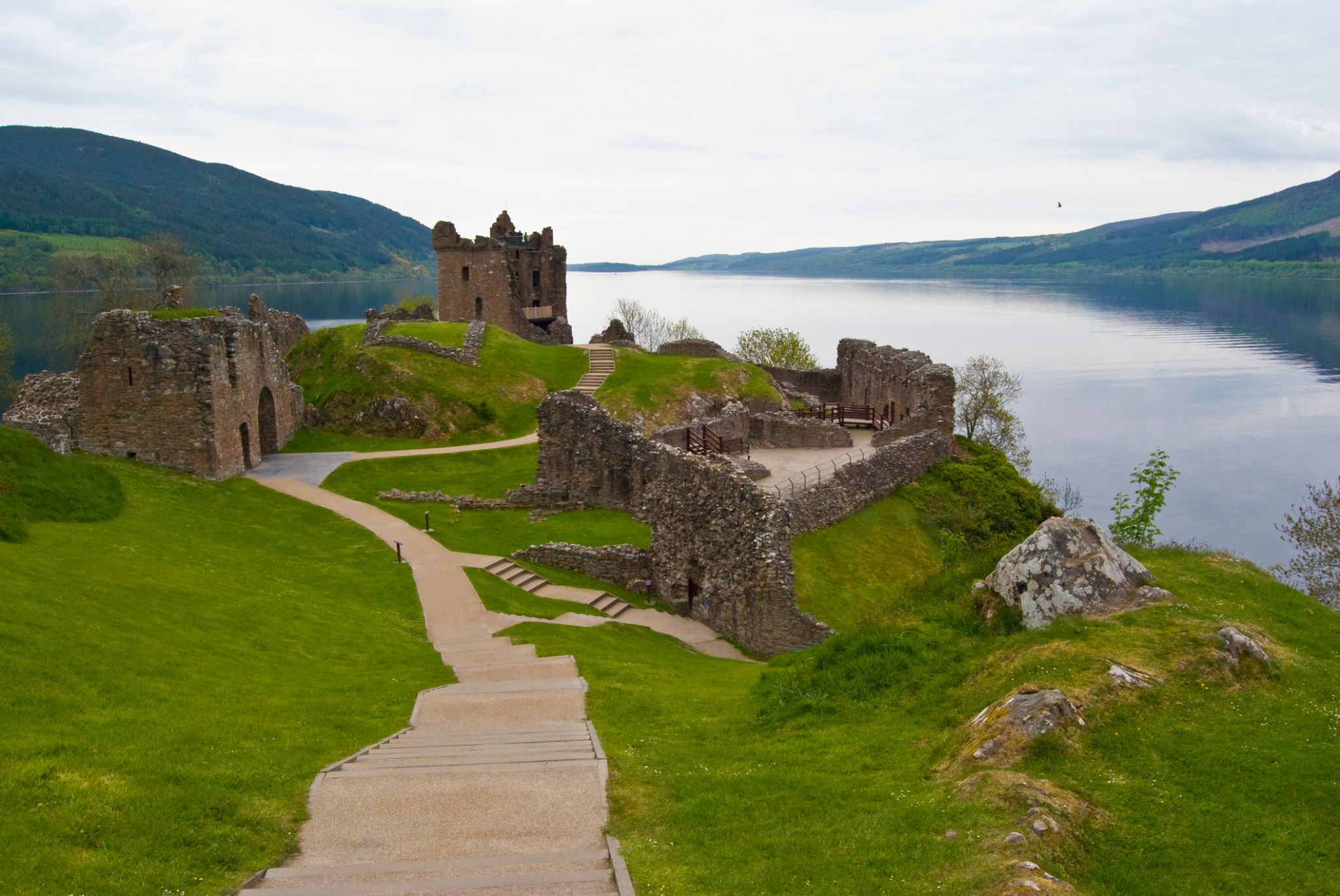
The town is well known for the Invergordon Mutiny of 1931. More recently it has also become known for the repair of oil rigs which line up in the Cromarty Firth on which the town is situated. In the 1970s and 1980s nearby Nigg was known for the construction of these rigs. The yard used for this is now attempting to re-establish itself as a fabricator of large offshore wind turbines and oil rig refurbishment since being purchased by Global Energy Group.
For a number of years Invergordon was the site of an aluminium smelter until 1981 when British Aluminium closed it down. The pipeline that covered the conveyor belt from the smelter to the BA pier was not dismantled until the early 2000s and the two large tanks still stand today as well as a water tower.
It still has a grain whisky distillery, operated by Philippines-owned whisky giant Whyte and Mackay, the output of which contributes to many blended whiskies. Connected to the distillery was the Invergordon Distillery Pipe Band.
At present the port is visited by many large cruise liners each year, as the deep water port allows disembarkation for coach tours in the northern Highlands.
Since the 1970s some would perceive the town as a 'Glasgow colony', since many workers were recruited from southern Scotland to work in the oil rig fabrication and aluminium smelting industries. As a result, the residents' accents often show more influence from Glasgow, than the surrounding Easter Ross dialect of Highland Englishalthough this has changed in recent years.
In recent years Global Energy Group have been expanding, with the purchase of the Nigg fabrication yard it has also brought much appreciated work to Invergordon's Docks with the town again full of oil company workers through the day.

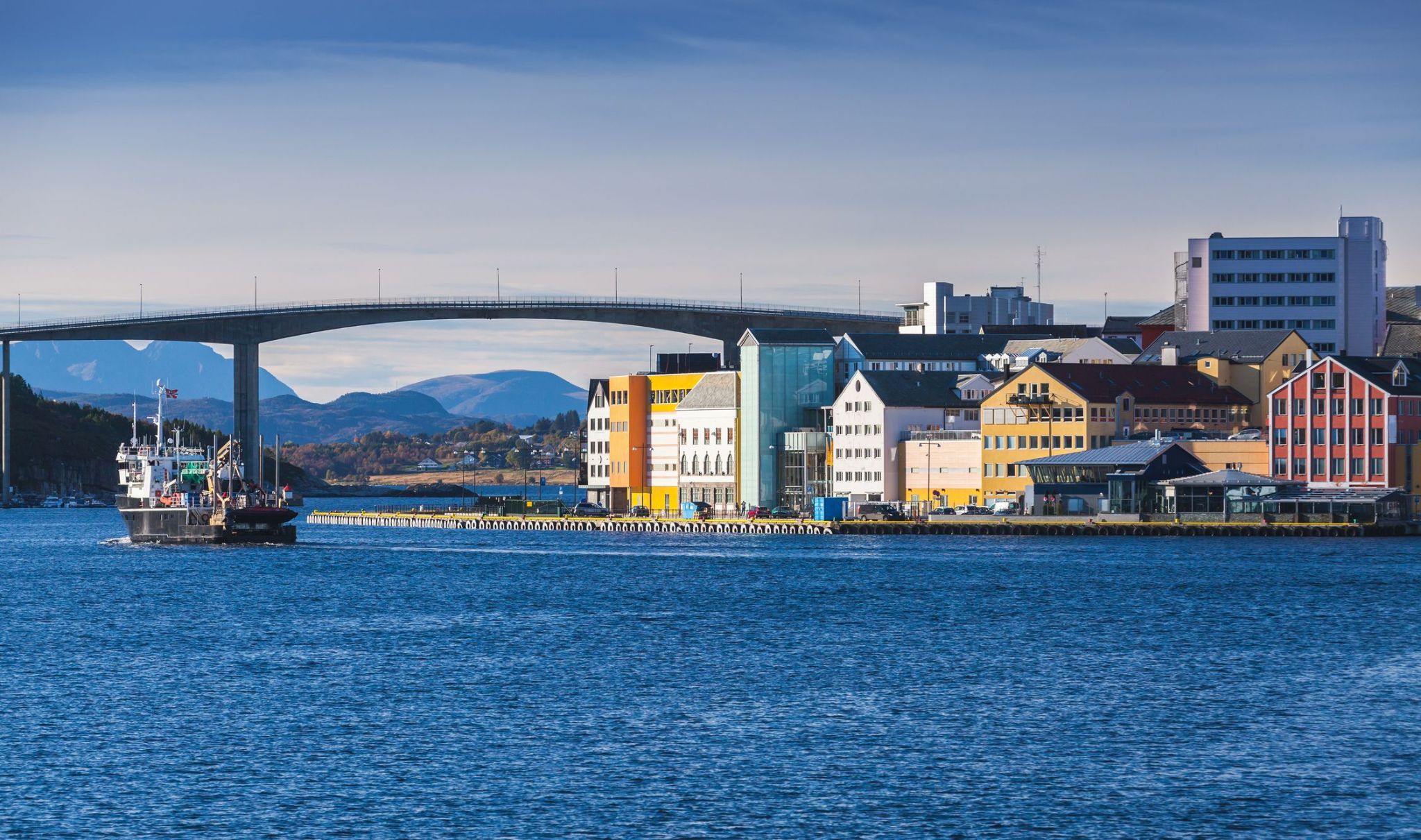
The southernmost coast of Norway invites you to discover the amazing city of Kristiansand. This charming town is surrounded by the sea on three sides. It is the fifth-largest city in the country, and although its center fits within a small area of just 1 km², Kristiansand has much to offer its visitors. It’s not only about the incredibly clean Norwegian air but also many other interesting attractions.
Among them is Norway’s largest zoo, home to 80 species of animals. A visit here will delight both children and adults. You can enjoy rides on carousels, laugh wholeheartedly at the circus, and take the whole family on a sea excursion or spend time together at a playground.
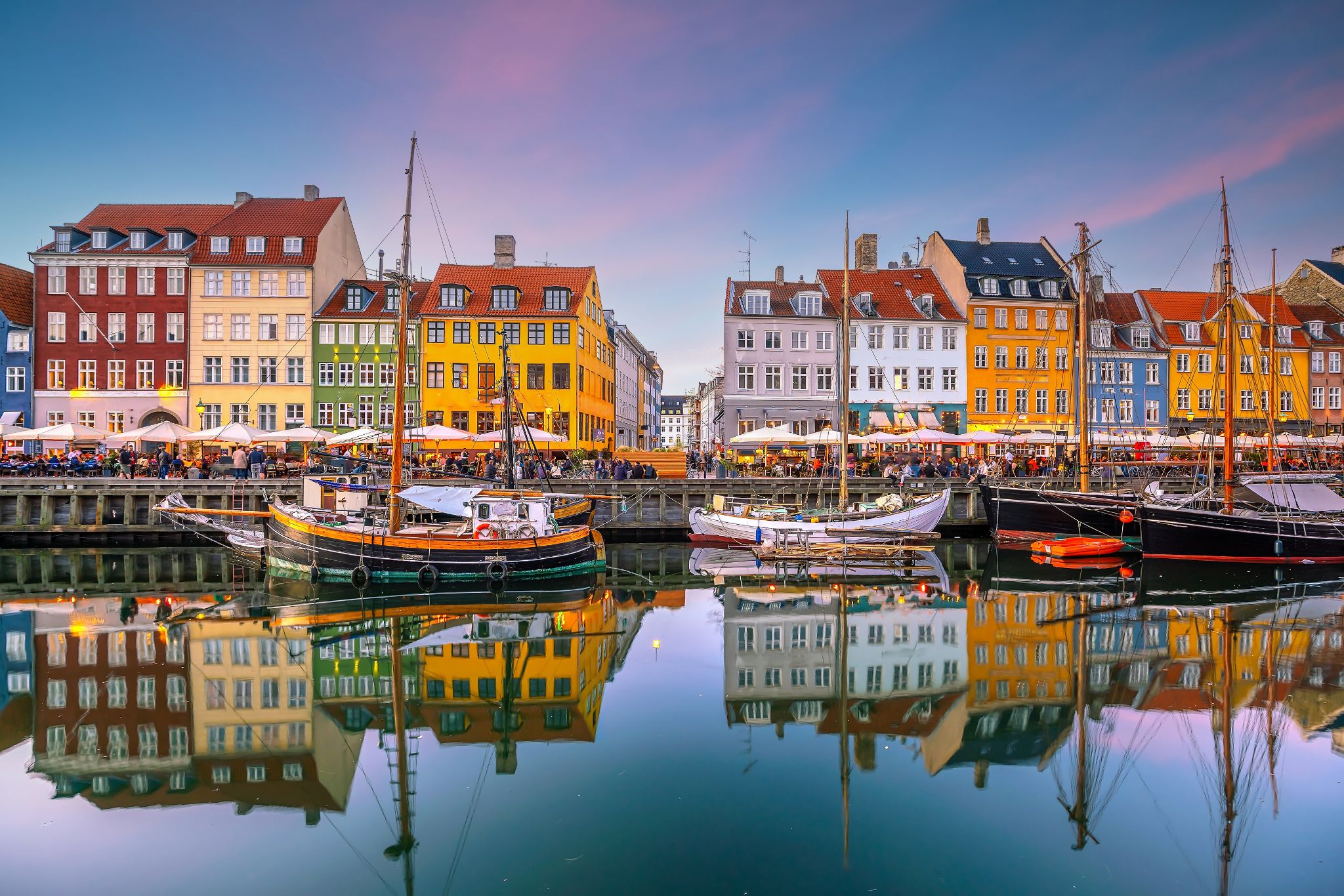
the capital and chief port of Denmark, a city that occupies the eastern part of Zealand and northern part of the island of Amager; population 518,574 (2009).

the capital and chief port of Denmark, a city that occupies the eastern part of Zealand and northern part of the island of Amager; population 518,574 (2009).
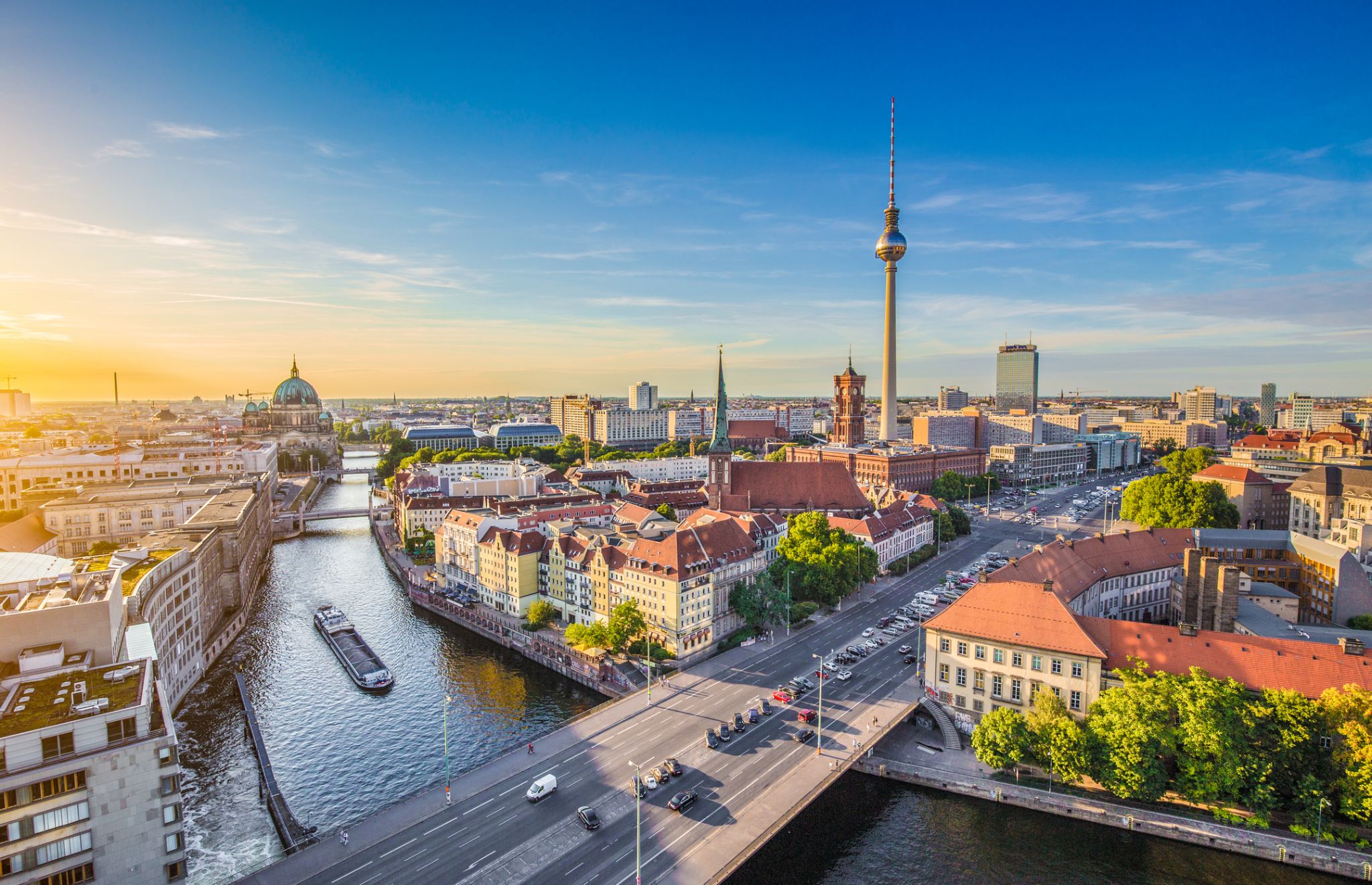
Berlin is the capital and largest city of Germany, by both area and population. With 3.7 million inhabitants, it has the highest population within its city limits of any city in the European Union. The city is also one of the states of Germany, being the third smallest state in the country by area. Berlin is surrounded by the state of Brandenburg, and Brandenburg's capital Potsdam is nearby. The urban area of Berlin has a population of over 4.6 million and is therefore the most populous urban area in Germany.The Berlin-Brandenburg capital region has around 6.2 million inhabitants and is Germany's second-largest metropolitan region after the Rhine-Ruhr;region,as well as the fifth-biggest metropolitan region by GDP in the European Union.

Quiet streets lined with half-timbered houses make Ronne (Rønne) a cozy corner on the Danish island of Bornholm, where every step is filled with the scent of the sea and fresh pastries from local bakeries. The town is known for its ceramics and glass workshops, as well as the cozy atmosphere of its fishing port, where you can taste freshly smoked herring while watching ships slowly enter the harbor. Here, time seems to slow down, allowing you to enjoy strolls through the old town with its cobblestone streets and picturesque houses that have preserved their 18th-century charm.
In Ronne, travelers will find a peaceful retreat with a touch of Danish coziness and the creative spirit of the island. The Bornholm Museum offers insights into the island's history and maritime traditions, while walks along the coast reveal rocky shores and clean beaches inviting relaxation year-round. This town is the perfect place for those who wish to experience authentic Denmark, breathe in the sea air, and discover the warm hospitality of Bornholm.
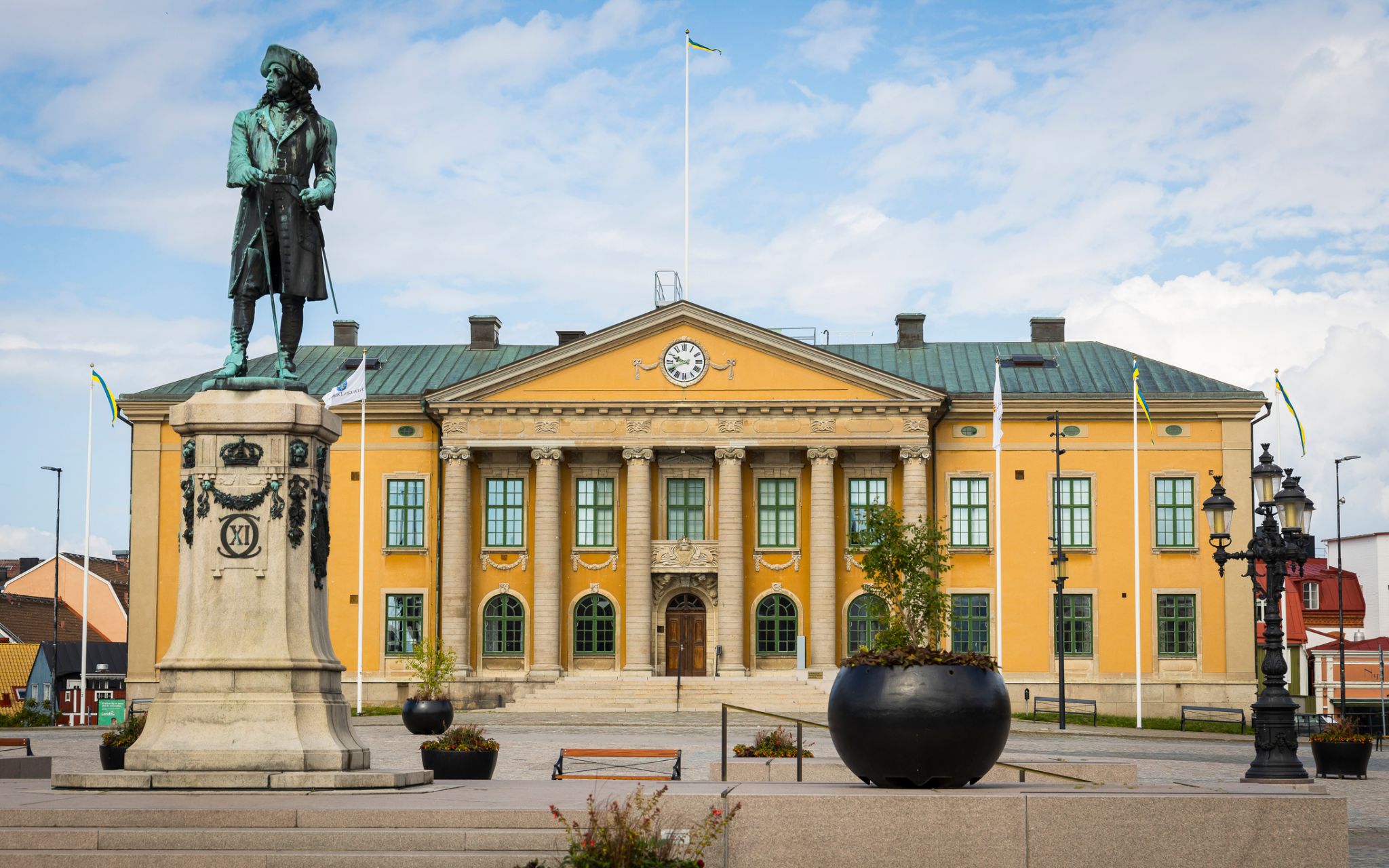



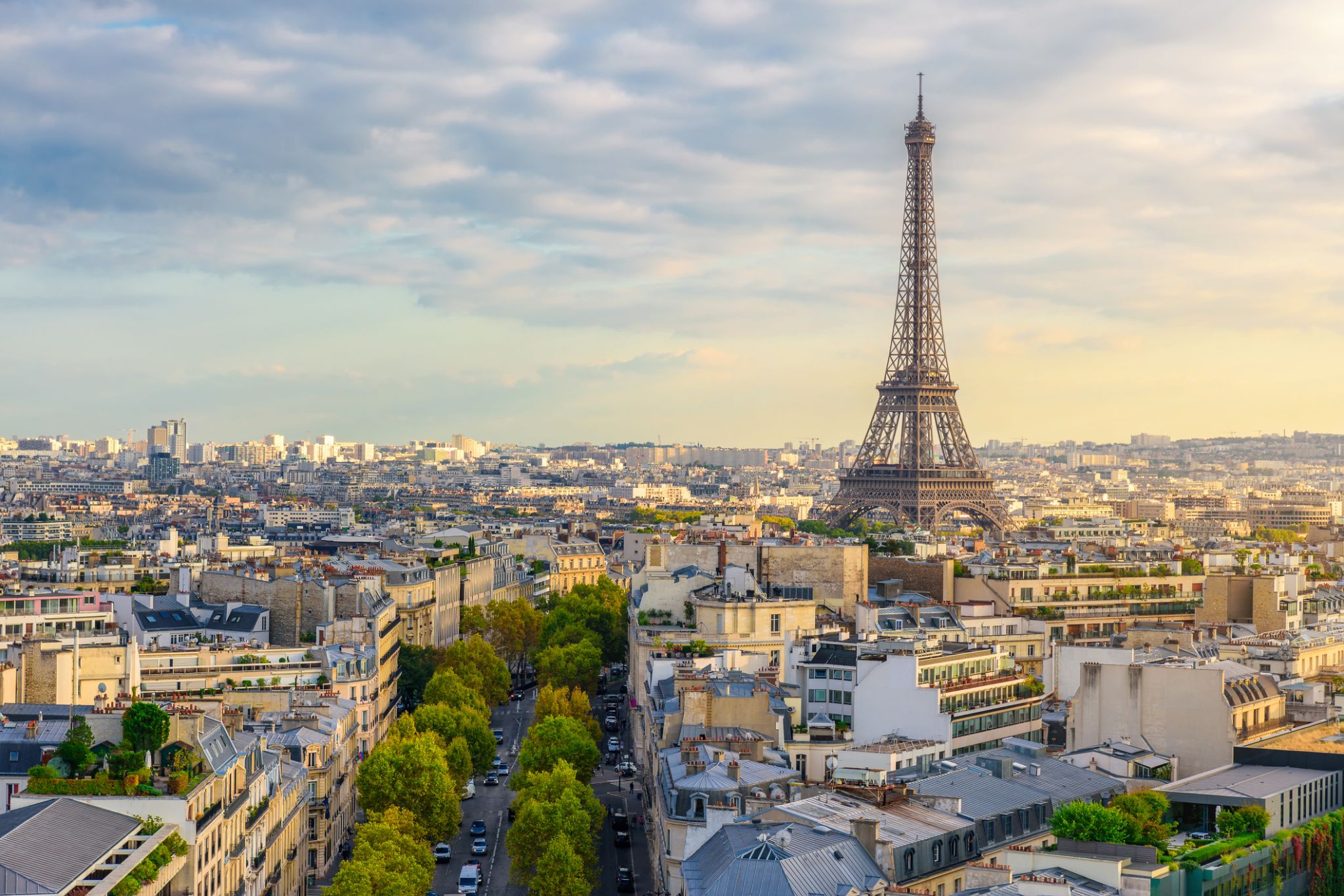
the capital of France, on the Seine River; population 2,203,817 (2006). Paris was held by the Romans, who called it Lutetia, and by the Franks, and was established as the capital in 987 under Hugh Capet. It was organized into three parts—the Île de la Cité (an island in the Seine), the Right Bank, and the Left Bank—during the reign of Philippe-Auguste 1180–1223. The city's neoclassical architecture dates from the modernization of the Napoleonic era, which continued under Napoleon III, when the bridges and boulevards of the modern city were built.
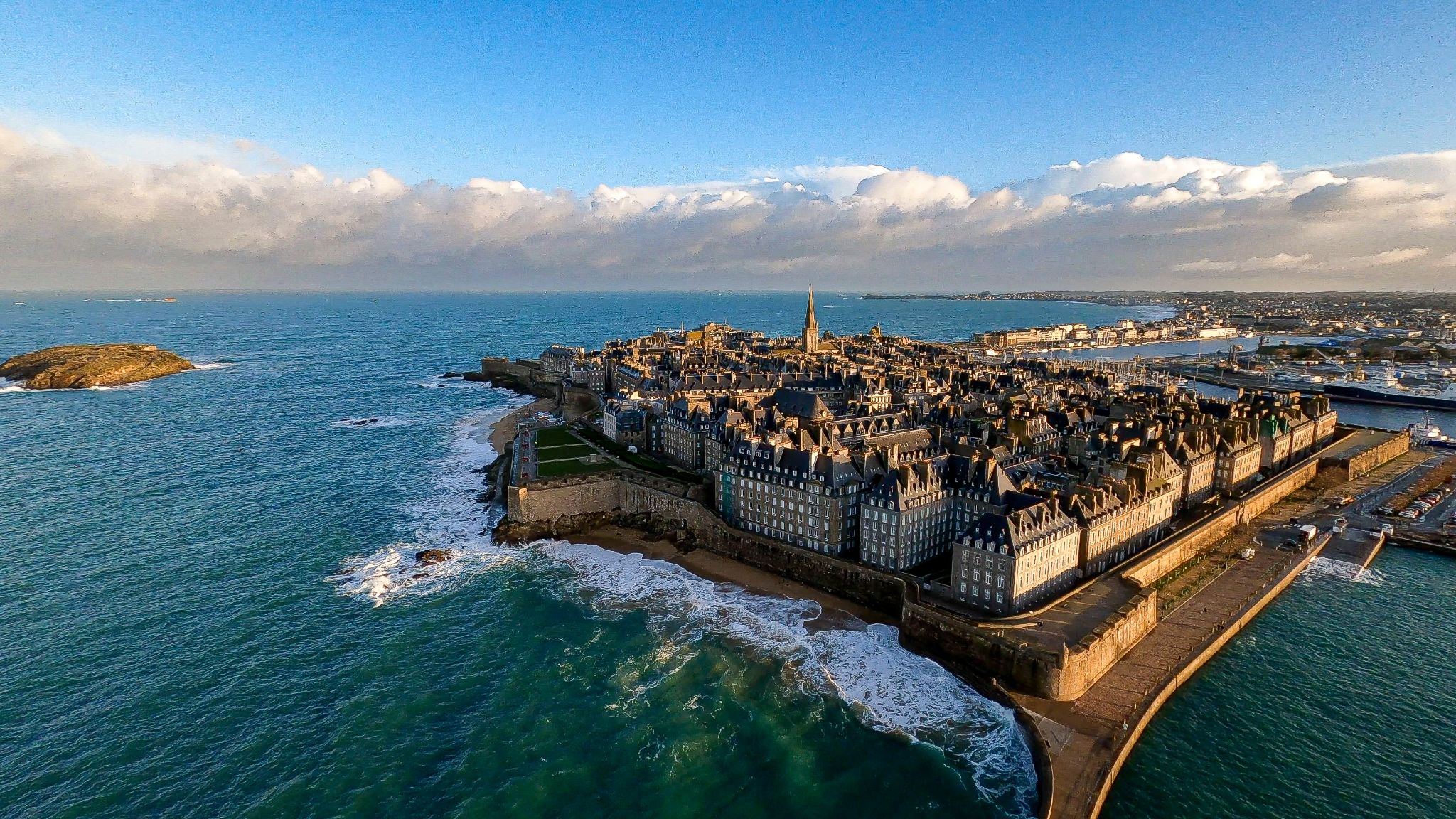
The sea breeze and the cries of seagulls accompany you in Saint-Malo, a city on the Brittany coast that has preserved its spirit of maritime adventure and independence. Here, high fortress walls embrace narrow streets, while cobblestone paths lead you to cozy cafes overlooking the ocean. The history of pirates and sailors comes alive as you walk along the ramparts, watch the tides transform the coastline, or take a boat to visit the famous Grand Bé island, where the writer Chateaubriand is buried.
In Saint-Malo, you can enjoy fresh seafood in local restaurants, taste oysters harvested from nearby waters, or simply have a picnic on the sandy beaches revealed at low tide. The city offers a sense of both coziness and freedom, blending picturesque architecture with the energy of the Atlantic, while the sea breeze and salty air remind you that here, history and nature always walk beside you.


Dublin is the capital of, and largest city in, Ireland. It is on the east coast of Ireland, in the province of Leinster, at the mouth of the River Liffey, and is bordered on the south by the Wicklow mountains. It has an urban area population of 1,173,179, while the population of the Dublin Region (formerly County Dublin), as of 2016, was 1,347,359, and the population of the Greater Dublin area was 1,904,806.
There is archaeological debate regarding precisely where Dublin was established by Celtic-speaking people in the 7th century AD. Later expanded as a Viking settlement, the Kingdom of Dublin, the city became Ireland's principal settlement following the Norman invasion. The city expanded rapidly from the 17th century and was briefly the second largest city in the British Empire before the Acts of Union in 1800. Following the partition of Ireland in 1922, Dublin became the capital of the Irish Free State, later renamed Ireland.
Dublin is a historical and contemporary centre for education, the arts, administration and industry. As of 2018 the city was listed by the Globalization and World Cities Research Network (GaWC) as a global city, with a ranking of "Alpha -", which places it amongst the top thirty cities in the world.

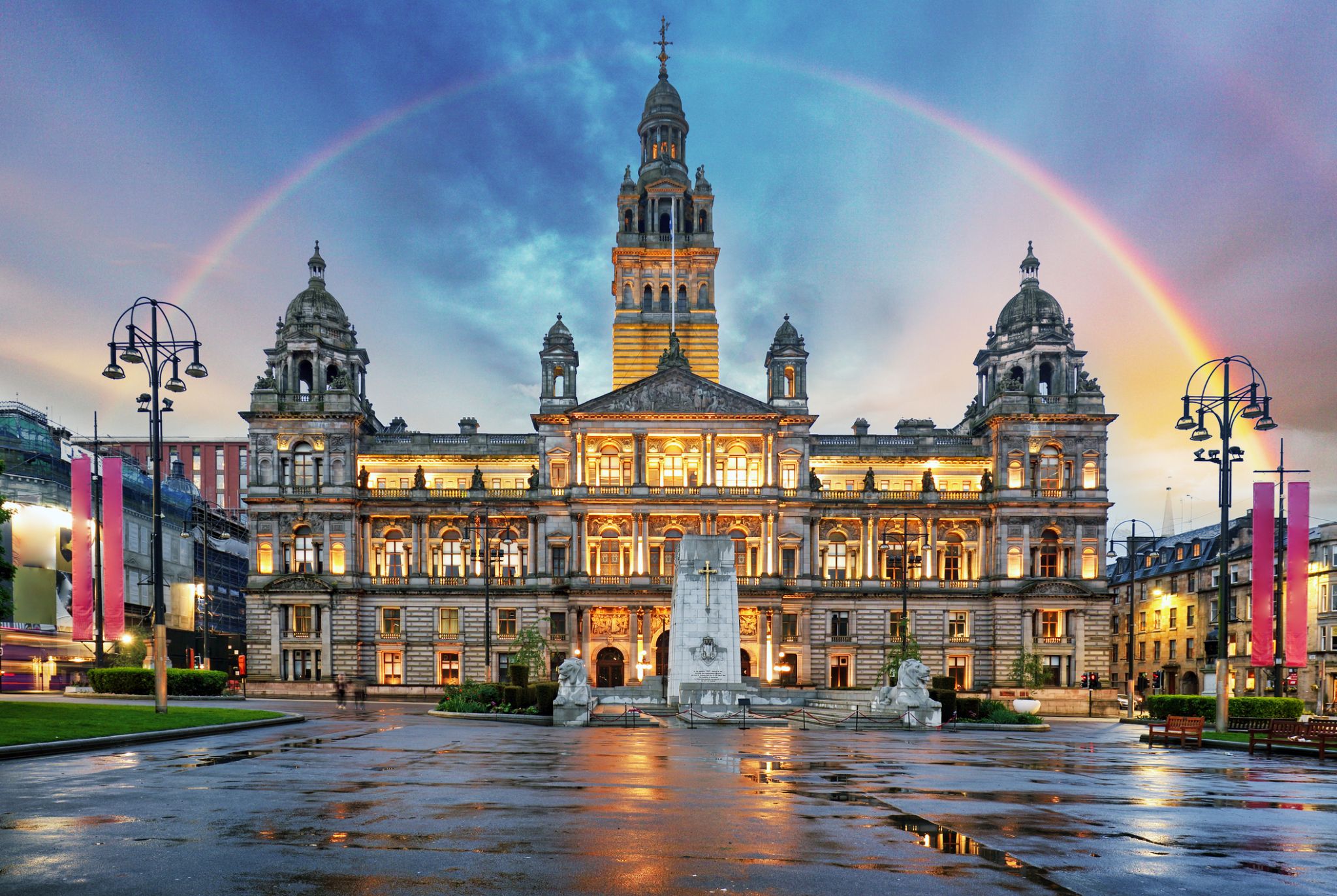







Sydney is the state capital of New South Wales and the most populous city in Australiaand Oceania. Located on Australia's east coast, the metropolis surrounds Port Jackson and extends about 70 km (43.5 mi) on its periphery towards the Blue Mountains to the west, Hawkesbury to the north, and Macarthur to the south. Sydney is made up of 658 suburbs, 40 local government areas and 15 contiguous regions. Residents of the city are known as "Sydneysiders". As of June 2017, Sydney's estimated metropolitan population was 5,131,326, and is home to approximately 65% of the state's population.

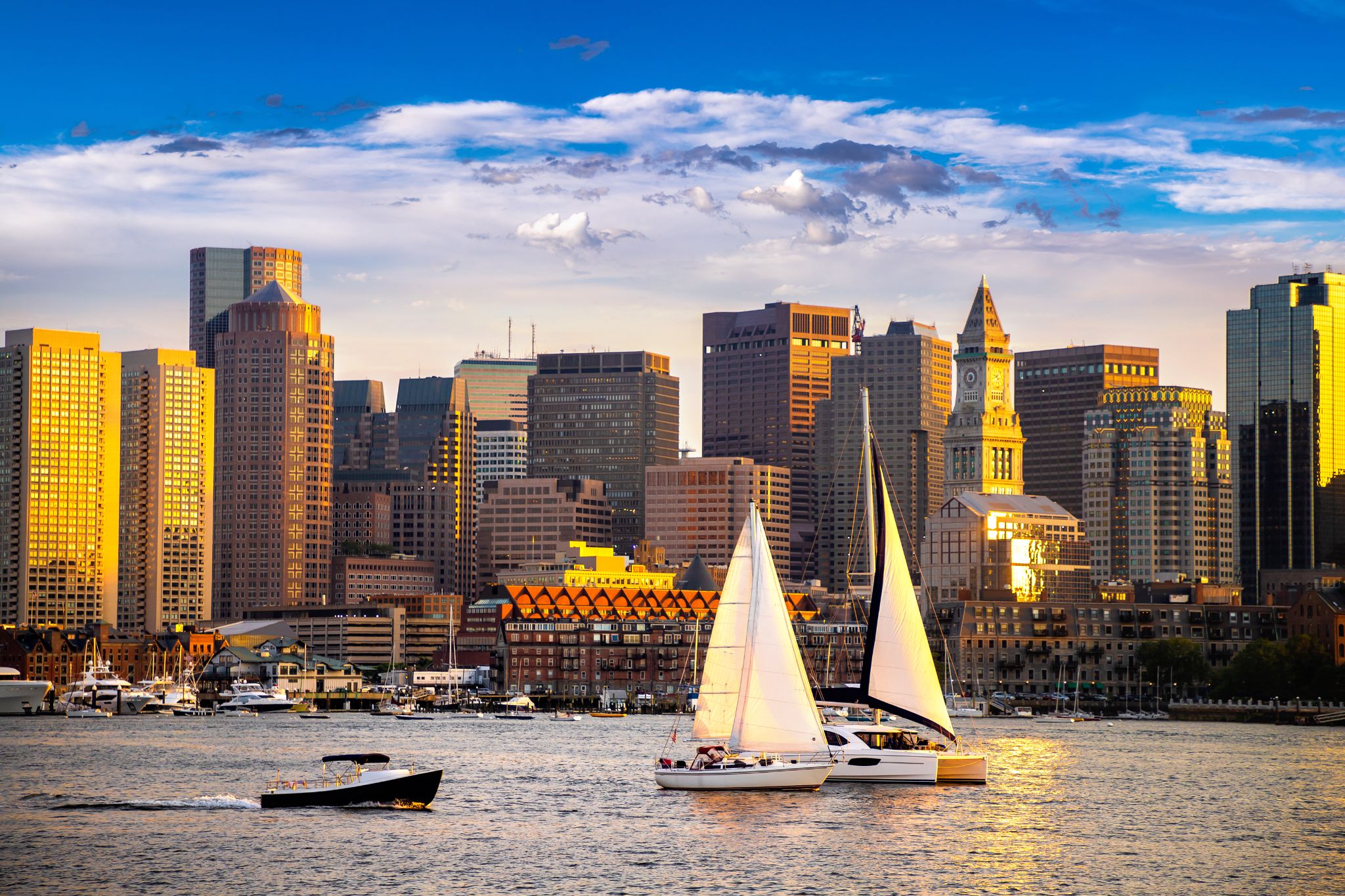
Boston is the capital and most populous municipality of the Commonwealth of Massachusetts in the United States. The city proper covers 48 square miles (124 km2) with an estimated population of 685,094 in 2017, making it also the most populous city in New England. Boston is the seat of Suffolk County as well, although the county government was disbanded on July 1, 1999. The city is the economic and cultural anchor of a substantially larger metropolitan area known as Greater Boston, a metropolitan statistical area (MSA) home to a census-estimated 4.8 million people in 2016 and ranking as the tenth-largest such area in the country. As a combined statistical area (CSA), this wider commuting region is home to some 8.2 million people, making it the sixth-largest in the United States.
Boston is one of the oldest cities in the United States, founded on the Shawmut Peninsula in 1630 by Puritansettlers from England. It was the scene of several key events of the American Revolution, such as the Boston Massacre, the Boston Tea Party, the Battle of Bunker Hill, and the Siege of Boston. Upon gaining U.S. independence from Great Britain, it continued to be an important port and manufacturing hub as well as a center for education and culture. The city has expanded beyond the original peninsula through land reclamation and municipal annexation. Its rich history attracts many tourists, with Faneuil Hall alone drawing more than 20 million visitors per year. Boston's many firsts include the United States' first public park (Boston Common, 1634), first public or state school (Boston Latin School, 1635) and first subway system (Tremont Street Subway, 1897).
The Boston area's many colleges and universities make it an international center of higher education, including law, medicine, engineering, and business, and the city is considered to be a world leader in innovationand entrepreneurship, with nearly 2,000 startups. Boston's economic base also includes finance, professional and business services, biotechnology, information technology, and government activities. Households in the city claim the highest average rate of philanthropy in the United States; businesses and institutions rank among the top in the country for environmental sustainability and investment. The city has one of the highest costs of living in the United States as it has undergone gentrification, though it remains high on world livability rankings.


The world famous city of New York , the largest city in the United States, with a population of 8.5 million people, and with suburbs - 20.6 million. New York is the largest economic, political, scientific, and cultural center of the United States. It is rightly called the "Main Gate" in the United States, and the world's largest John F. Kennedy Airport is located here. One of the distinguishing features of the city is the variegated national composition of the population, also called the United States in Miniature.
New York gathered in itself the whole essence of this country: fashion, religion, goods, pace and rhythm of American life. The UN headquarters is located here. There are also many universities in New York, the Academy of Sciences, and many other scientific institutions. Like any other metropolis in the world, New York invites you to visit numerous museums in the city, theaters and concert halls, including the Metropolitan Opera and Carnegie Hall. A great place to relax in New York is Central Park, where you can feed hand-held squirrels, which, to everyone's surprise, are not afraid of people. You can also appreciate the beauty of the famous Empire State Building, with a height of 102 floors, it is an example of skyscrapers, although it was built in 1829-1831. "Must see" in New York, of course, the Statue of Liberty ("Lady Liberty"), located at the mouth of the Hudson River, on the small island of Liberty. And of course, don't forget to stroll along Broadway.

The world famous city of New York , the largest city in the United States, with a population of 8.5 million people, and with suburbs - 20.6 million. New York is the largest economic, political, scientific, and cultural center of the United States. It is rightly called the "Main Gate" in the United States, and the world's largest John F. Kennedy Airport is located here. One of the distinguishing features of the city is the variegated national composition of the population, also called the United States in Miniature.
New York gathered in itself the whole essence of this country: fashion, religion, goods, pace and rhythm of American life. The UN headquarters is located here. There are also many universities in New York, the Academy of Sciences, and many other scientific institutions. Like any other metropolis in the world, New York invites you to visit numerous museums in the city, theaters and concert halls, including the Metropolitan Opera and Carnegie Hall. A great place to relax in New York is Central Park, where you can feed hand-held squirrels, which, to everyone's surprise, are not afraid of people. You can also appreciate the beauty of the famous Empire State Building, with a height of 102 floors, it is an example of skyscrapers, although it was built in 1829-1831. "Must see" in New York, of course, the Statue of Liberty ("Lady Liberty"), located at the mouth of the Hudson River, on the small island of Liberty. And of course, don't forget to stroll along Broadway.